Our
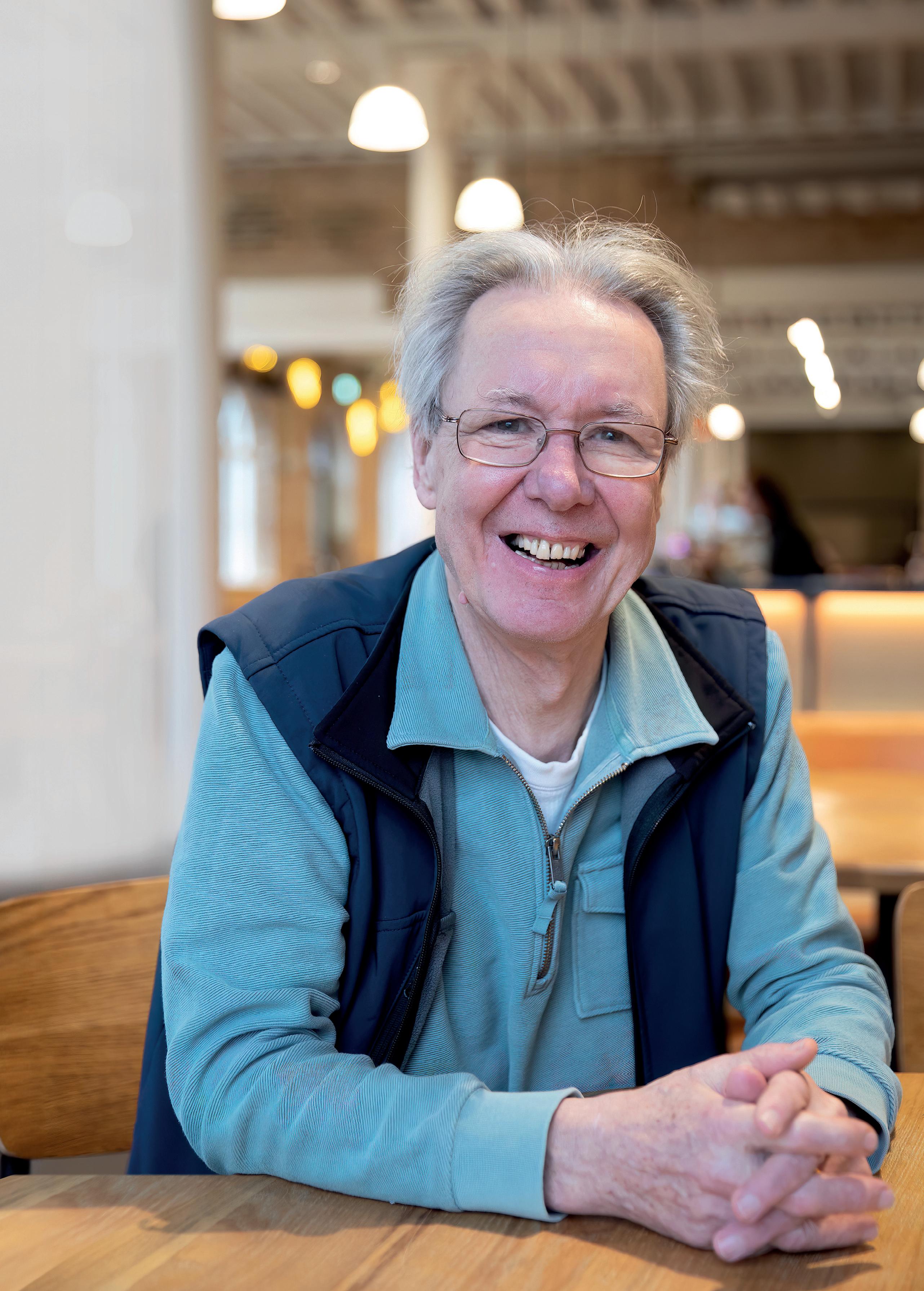

Our

How easy is it to get the treatment, care and support you need?



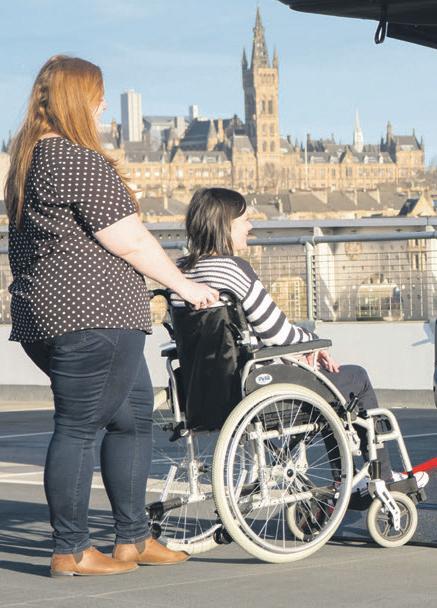











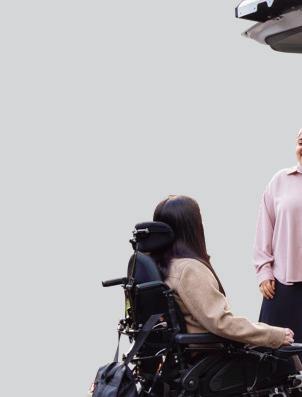


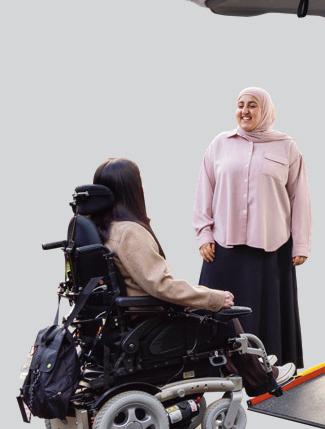







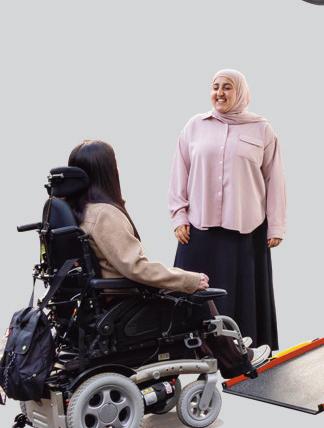
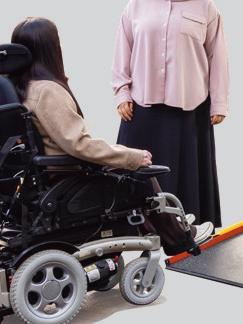





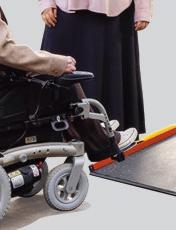



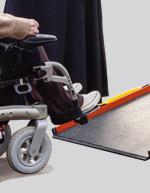






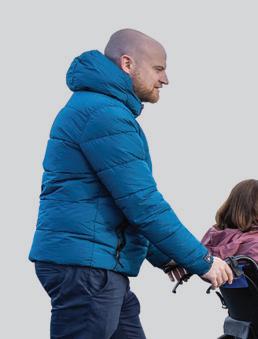
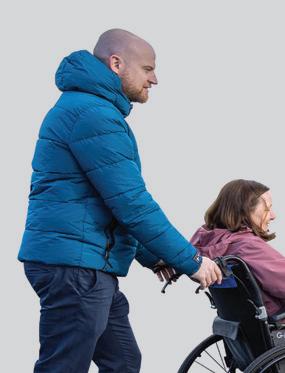

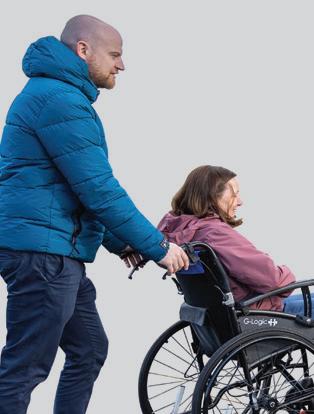
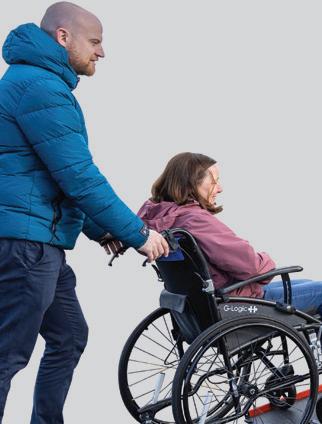
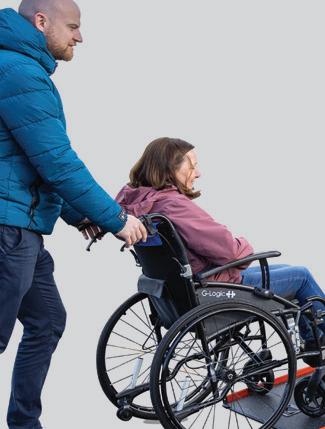
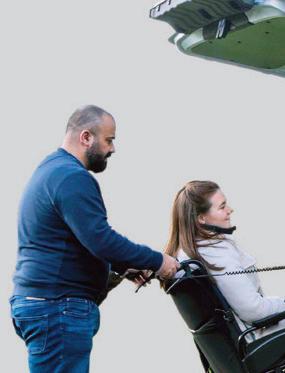
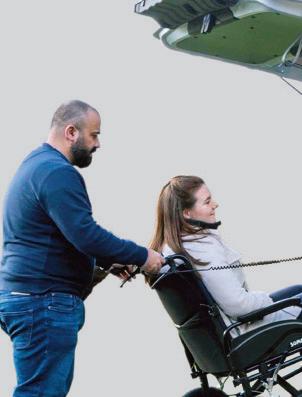
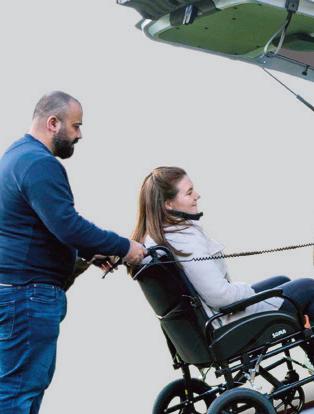
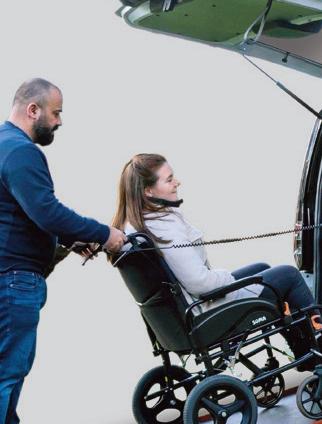
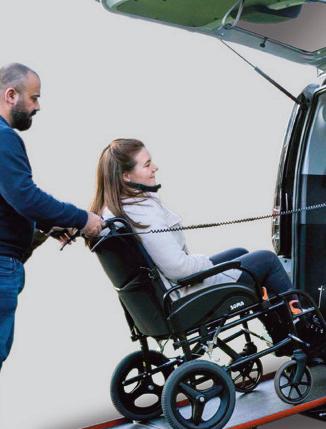













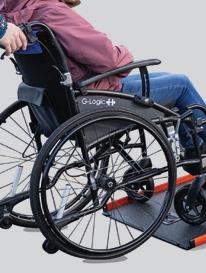

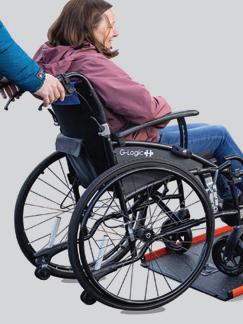

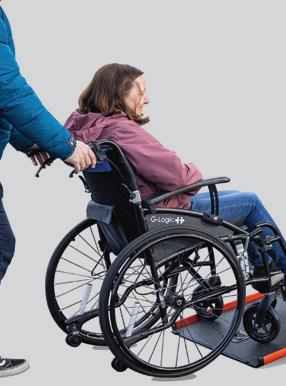
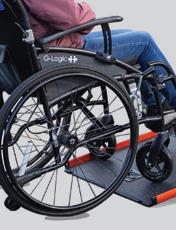

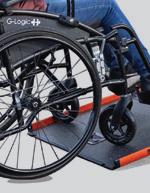




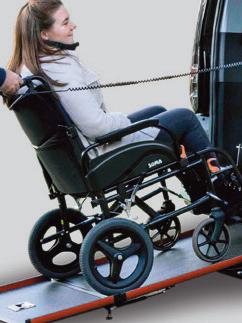
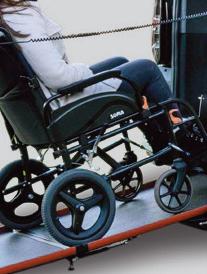


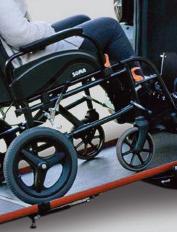








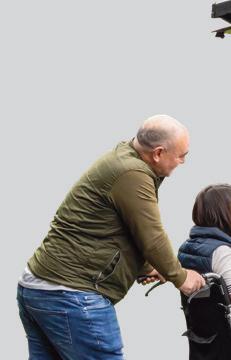
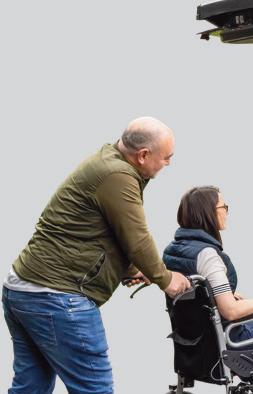

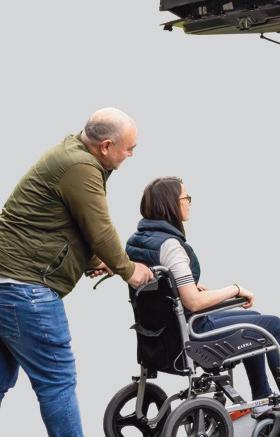
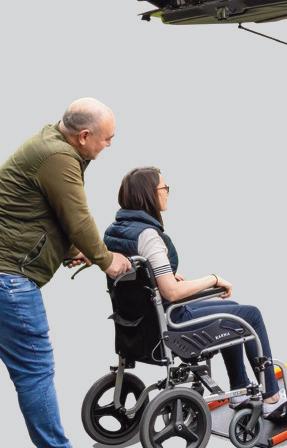



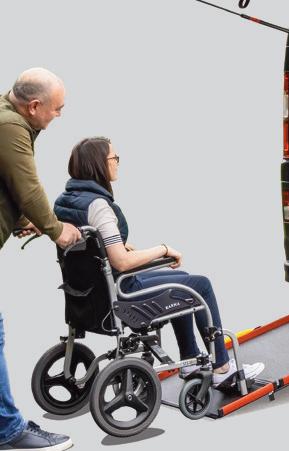



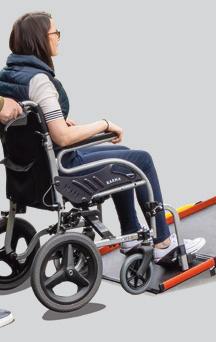
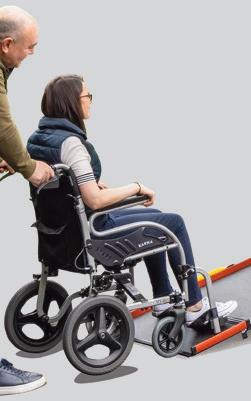










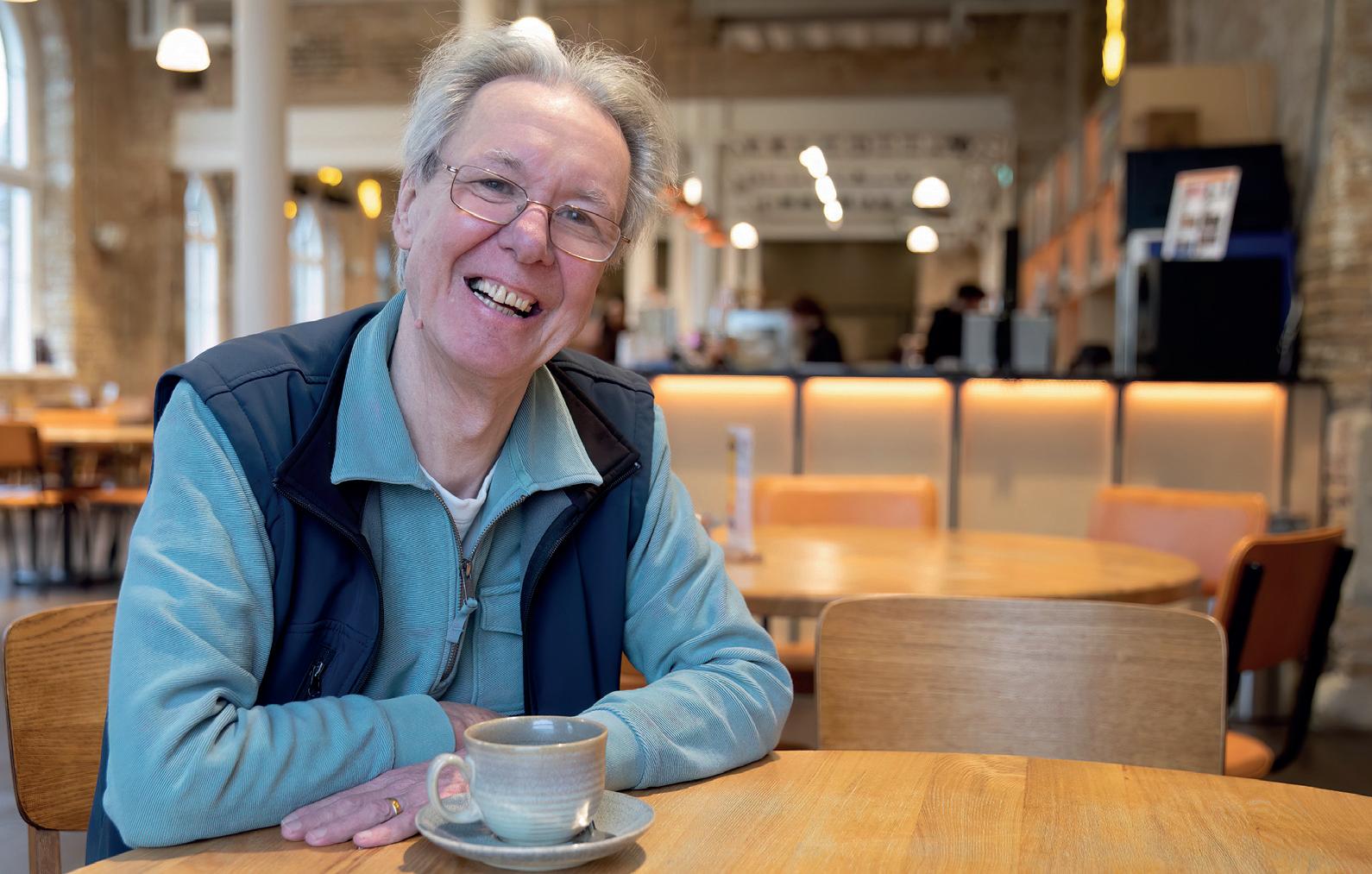







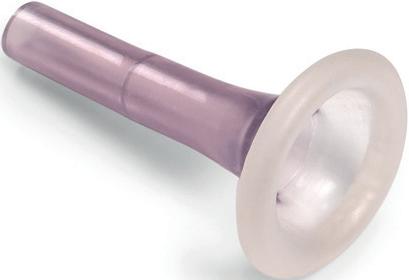












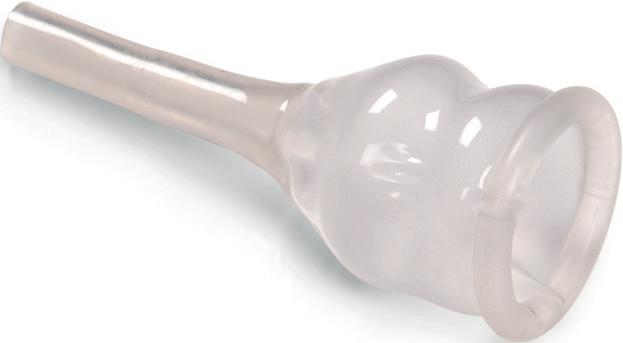







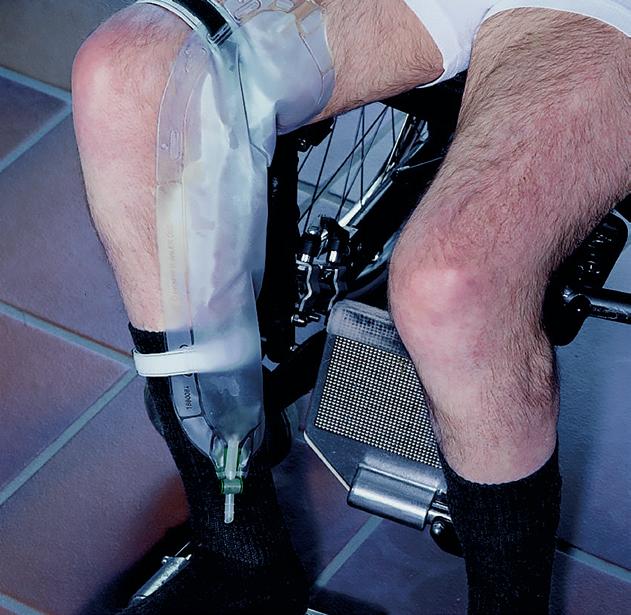



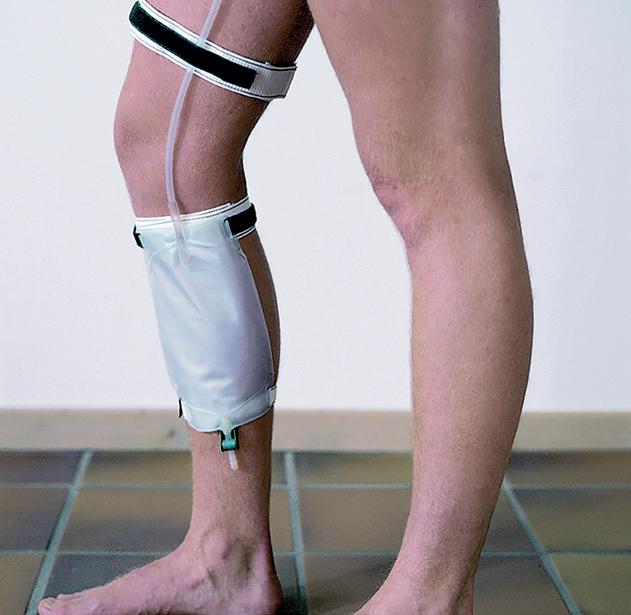














You may notice while reading this issue we’ve introduced QR codes on some of the pages. For people who aren’t familiar with them, here’s some more information.
What’s a QR code?
It’s a type of barcode that can be easily scanned by a digital device, like a smartphone or tablet, to open a website. Most modern devices have built-in QR scanners in the camera.
How to use a QR code
1. Open the camera app on your device.
2. Point your device at the QR code as if you’re taking a photo.
3. Once your device recognises the QR code, a notification will pop up on your screen.
4. Tap the notification to be directed to the web page linked to the QR code.

Welcome to our ‘new look’ MS Matters. We’ve been refreshing our brand to make sure it looks to the future and positively represents our whole community. We hope you enjoy the changes we’ve made.
We’re delighted with how the magazine is evolving and we’d love to hear your thoughts on the new design. We want MS Matters to be accessible, inclusive and engaging. Just drop us an email at msmatters@mssociety.org.uk
In this issue we’re exploring access to treatment, services and support on the NHS. As a person living with secondary progressive MS, I’ve experienced both the ups and downs of what that means. When you’re getting the support you deserve, it’s smiles all round. But there’s nothing more frustrating than a conversation with your nurse or consultant about



long waiting lists or barriers to effective treatments.
Accessing the best possible healthcare and navigating the system is so important to us. We’ve gathered inspiring stories from all corners of our community to amplify your message.
If you’d like to talk about any of the topics in this issue, please call our MS Helpline for free on 0808 800 8000. We’re here to support you.
Mark Offord Brand Elevation ManagerEnter our Weekly Lottery and you could be in with a chance of winning up to £10,000. There are great cash prizes to be won so don’t miss out on a chance to win big. Plus, with every entry, you’ll be helping to fund ground-breaking research and vital services like our MS Helpline.
at mssociety.org.uk/lottery
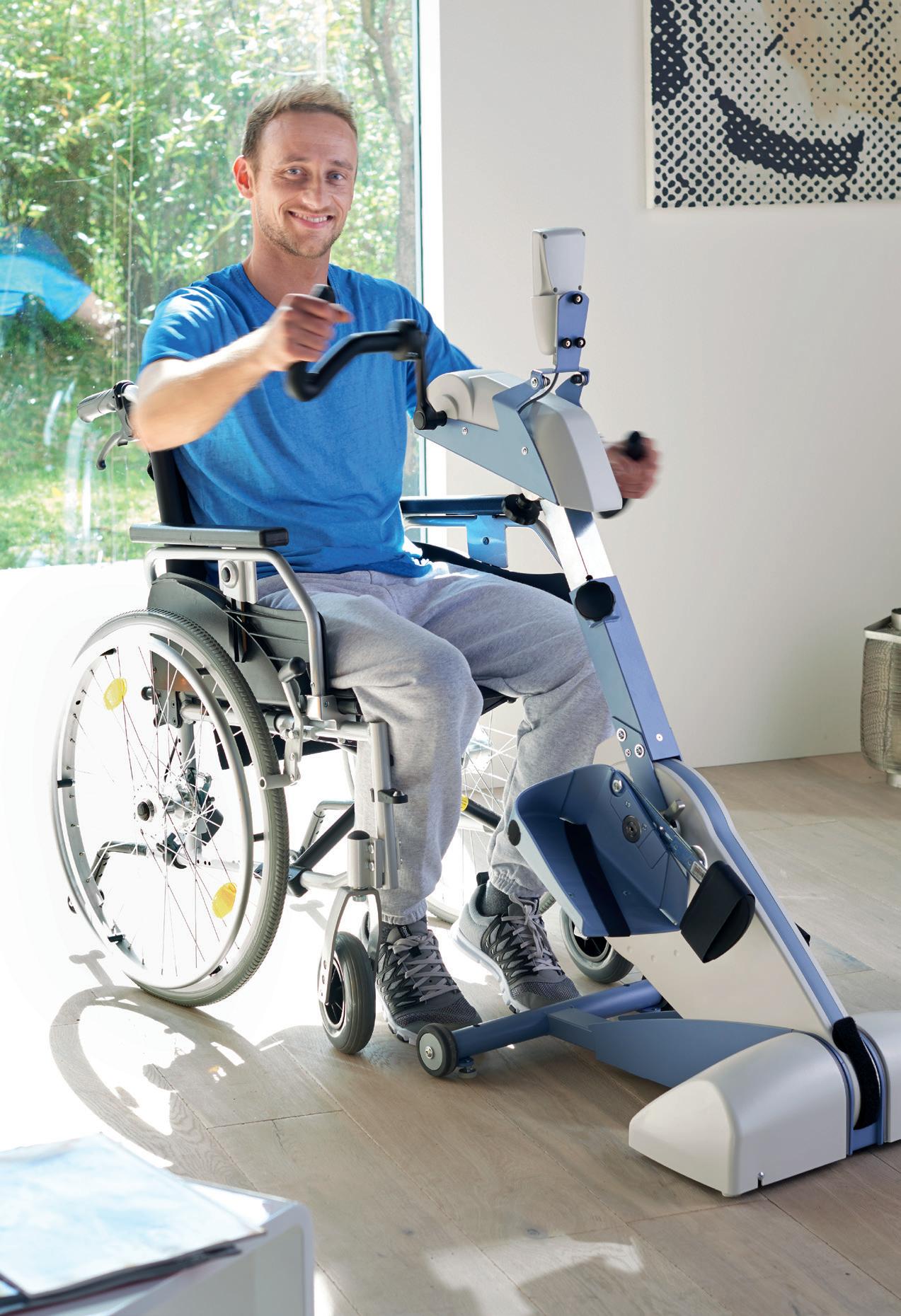


Active
Increases
Strengthens
Encourages
Exercising

















Running from 22 to 28 April, MS Awareness Week is our biggest opportunity in the calendar to come together and speak out.
We’re teaming up with our friends at MS Together, the MS Trust, MS-UK, the Neuro Therapy Network, Shift.ms and Overcoming MS.
Together, we’ll be launching MS Unfiltered. It’s a sensitive and intimate campaign that’ll shine a light on the MS topics that can feel taboo or difficult to talk about. We’ll create a safe
space for people to talk openly about everything from bladder control and sexual dysfunction, to navigating menopause and cultural stigma. We worked with

an amazing group of people living with MS to help us come up with the theme, including Nin Sambhi (pictured). The group’s input has been the driving force behind this campaign.
Speaking out together
We hope MS Unfiltered will raise awareness about the huge range of symptoms and daily challenges people with MS face. We also hope it’ll encourage people to speak out together and seek support.
Throughout the week we’ll be sharing people’s unfiltered
stories, as well as support and resources for anyone affected by these topics. We’ll also be sharing the results of a community survey that asked you about MS symptoms which might be sensitive or embarrassing.
Whatever you’re going through, we want you to know that you’re never alone.
Scan the QR code and visit mssociety.org.uk/msweek to learn more about the campaign and other ways you can get involved.




If you’re affected by any of the topics raised during MS Awareness Week you can contact our free and confidential Helpline on 0808 800 8000 or email helpline@mssociety.org.uk
Despite the best efforts of hard-working MS and neurology professionals, too many people with MS can’t get the support they need.
At least one in six people in the UK live with a neurological condition, including over 130,000 with MS. But underfunded and under-resourced
neurology services have sometimes left people’s health at risk and their needs unmet.
Over 6,500 people took part in our My MS My Needs survey
in 2022, the largest survey of people with MS in the UK. This showed an increase in unmet needs across a range of services since the 2019 survey.
Over half of the people who answered the question (57%) said they don’t get enough regular
support and guidance to self-manage their symptoms.
Over a third (35%) said they don’t get enough information from healthcare professionals about drugs available. Only 7% of people said this was an issue in the 2019 survey.
Lots of people are waiting a long time for appointments. A 2022 survey by the Neurological Alliance highlighted major delays in getting appointments with neurologists across a range of conditions, including






“It’s so important that people with MS can access the services they need, like neurology appointments and MRI scans. There’s a major issue with a lack of capacity in the system. With a lot of regional variation in staffing levels, people with MS in some areas are getting better care than in others. The government needs to act and develop an urgent plan to resource and improve neurology services.”
Dr Waqar Rashid, Consultant Neurologist at St George’s Hospital, London
MS. Over half of the people with MS who answered the question (55%) had delays to routine neurologist appointments in the past 12 months. And 49% had delays to a routine appointment with an MS nurse.
The UK simply doesn’t have the neurology workforce available to deliver the support people need. For the size of our population, the UK has the second lowest number of neurologists in Europe, according to a study by the European Academy of Neurology.
Access to neurology nurses and other specialist support is also lacking. All
this translates into lengthy waiting lists. In November 2023, more than 8,500 people in England had been waiting for a neurology appointment for over a year.
Delays in diagnosis and treatment can have devastating effects on people’s quality of life. They can also increase demands on other health and care services.
Neurology Now campaign
We’ve been campaigning hard for better access to MS and neurology services, and we won’t give up.
In 2021, we
launched our Neurology Now campaign, calling for a National Clinical Director for Neurology to be appointed to NHS England. In May 2022, the UK Government announced this is happening. However, the Government still needs to do much more.
We believe the best way to address workforce problems in neurology and MS care is for all UK governments to establish a Neurology Taskforce.
This Taskforce would bring together:
government departments
We believe the best way to address workforce problems in neurology and MS care is for all UK governments to establish a Neurology Taskforce
health and social care bodies professional bodies people affected by neurological conditions the voluntary sector It would look at the current neurology workforce and set out plans to make sure it’s fit for the future.
In June 2023 we supported the Neurological Alliance’s ‘Back The 1 in 6’ petition, calling for the establishment of a Neurology Taskforce. Over 19,000 people across the UK signed the petition, which was handed to the UK Government’s
We want the Neurology Taskforce to urgently address problems with the neurology workforce and services, so people get the support they need.
In July, we took the Neurology Taskforce proposal to Number 10 Downing Street, during a roundtable meeting on progressive MS. This brought together clinicians, people living with MS, politicians and the Prime Minister’s special advisers. We had a positive response from the Government on the proposal. We expect to follow up on this in 2024 as part of the Neurological Alliance charity coalition.



In the run-up to the general election we’ll be calling for the next UK Government to prioritise neurology and MS services. Join our campaigns community to raise your voice together with thousands of others campaigning for people with MS. Scan the QR code or visit mssociety.org.uk/campaign



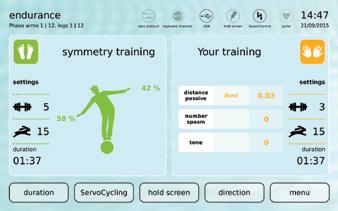
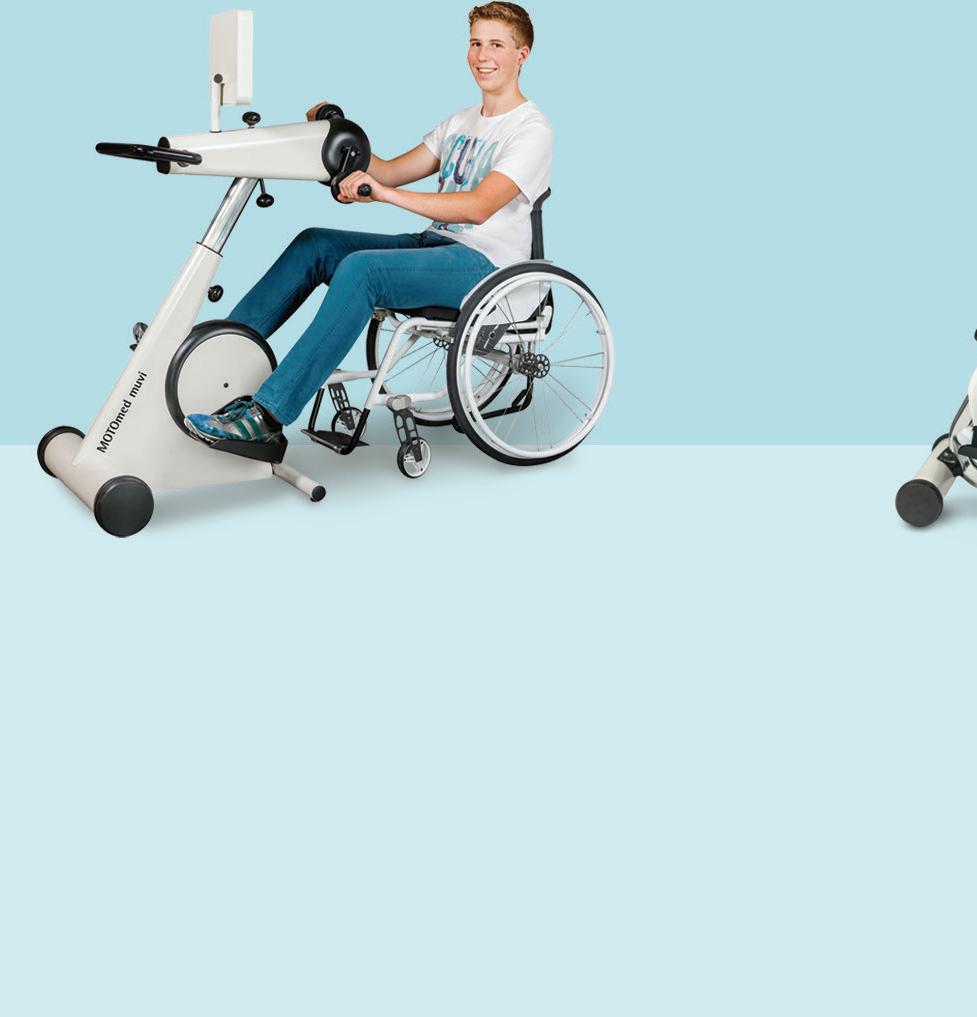


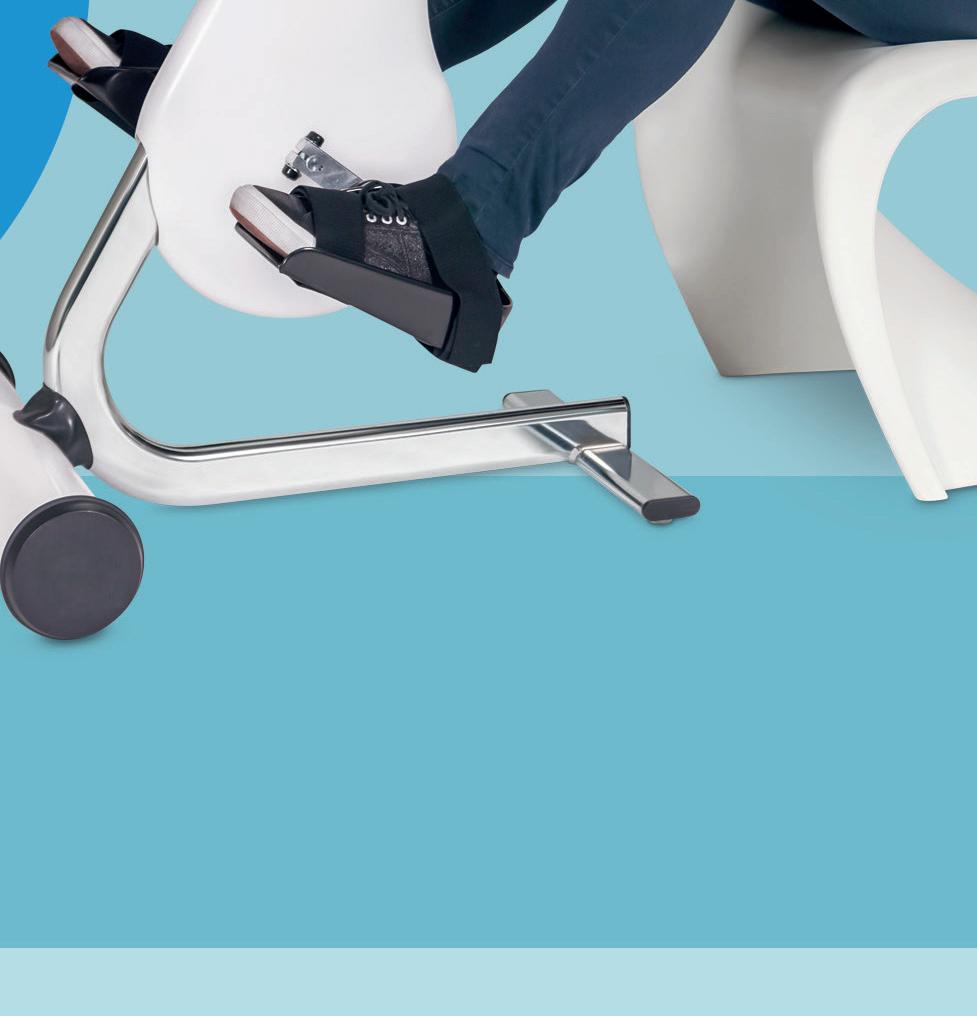






Sativex, a cannabis-based spray, is approved across the UK to treat moderate to severe spasticity when other treatments haven’t worked. But many people with MS are still being denied access to Sativex because their local health bodies aren’t prescribing it.

In 2021, we launched a campaign calling for an end to the Sativex postcode lottery in England. And in 2023 we encouraged you to contact your MP or local health body on this issue. David, a member of our campaigns community, did just that.
Access denied
“I’d asked my neurologist about Sativex numerous times but was repeatedly told he wasn’t allowed to prescribe it to his patients. The MS Society assured me that wasn’t technically
correct. I was increasingly frustrated that I was unable to access a drug that may drastically change my situation. So, following their advice, I wrote to Sir Oliver Heald, my local MP in Hertfordshire. I received a very prompt response

from Sir Oliver who was sympathetic to my situation. He immediately contacted my local health body (known as an Integrated Care Board or ICB). Their response confirmed that Sativex should be available for specialists to prescribe to anyone eligible.
Next time, when my neurologist said that Sativex was “locked
for prescription”, I challenged this using the letter from the ICB. After requesting access to the drug, my specialist told me he could prescribe Sativex with continued monitoring.
I’ve now been using Sativex for a few weeks. If I take it at least an hour before bed I seem to get fewer spasms. I’ve told the consultant I’m getting relief, so he said he’s happy to re-prescribe.”
Are you having issues accessing Sativex, like David? If you are, don’t hesitate to contact us for more information at campaigns@mssociety.org.uk

A group of people living with MS put on a ballet performance on 9 February at the Royal Opera House’s Paul Hamlyn Hall in London.
The ‘Live at Lunch’ performance was the culmination of a 12-week partnership with the Royal Ballet. We first partnered with the Royal Ballet in 2019 to run a series
of workshops for people living with MS. We were delighted when the Royal Ballet asked if we’d like to run the project again in 2023. Around 25 people with MS signed up and the dance sessions began on 1 November – World Ballet Day. Many people had never danced before.
The project is connected to a ballet by award-winning choreographer Cathy
Marston called The Cellist. The ballet is inspired by the life of acclaimed musician Jacqueline du Pré, who lived with MS. The weekly dance workshops were delivered by
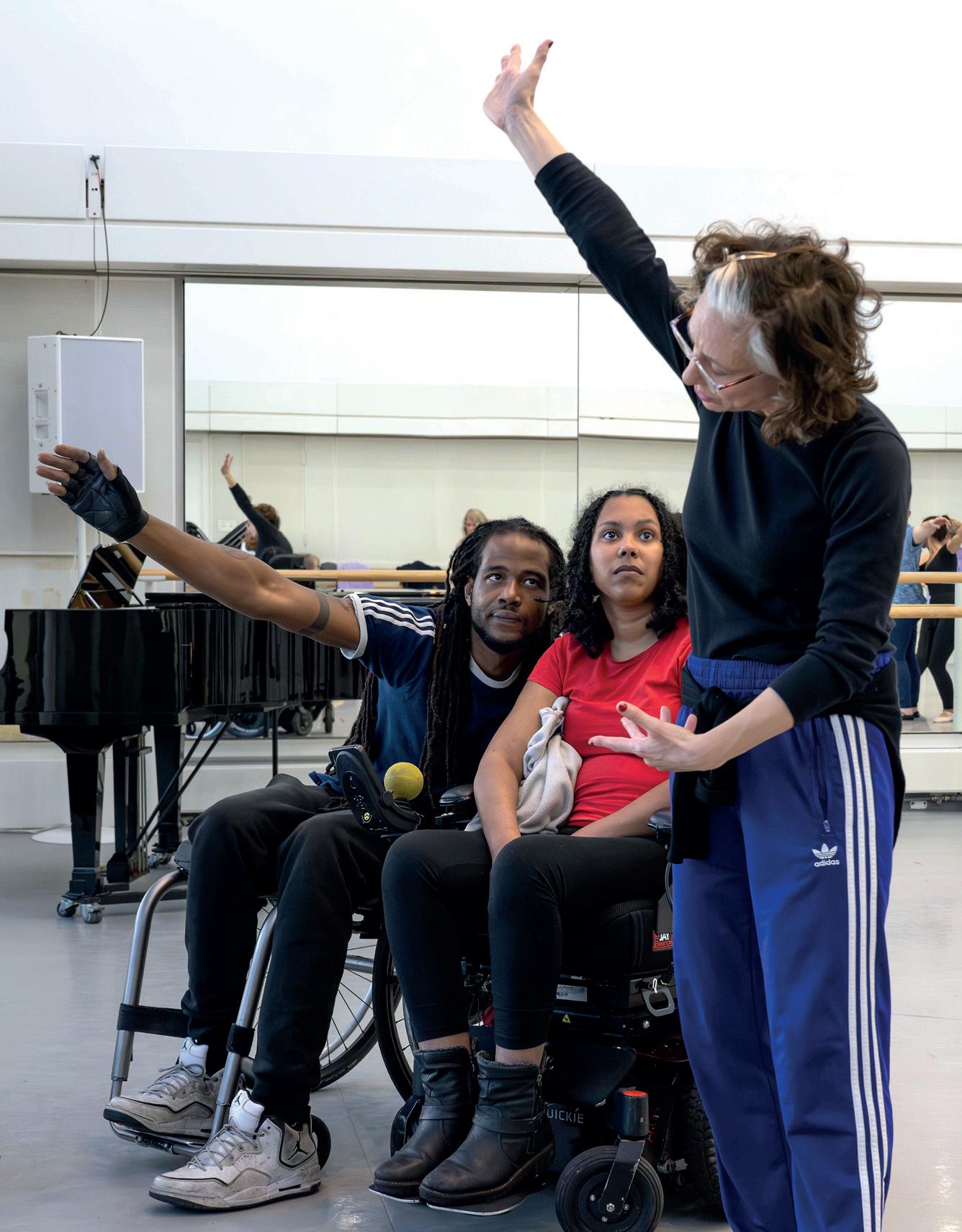

while exploring the principles of ballet technique.




“Ballet is new to us so that makes it exciting. But it’s also showing us the different ways we can use whatever movement our mobility affords us to create something beautiful.”
Ekow and Carly, London








“Music and dance are the best therapy for me. Movement is even more important to me now than ever. I also want to teach my two beautiful daughters that, whatever life throws at you, be brave and never give up.”
Rozani, 40, London

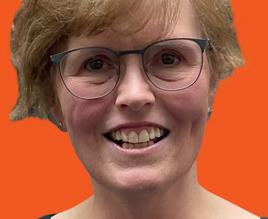

“I’ve always loved dancing but could never describe myself as a dancer. But this project is about finding out and expanding what we’re capable of and not what we can’t do. Maybe I am a dancer after all!”
Chris, 58, West Midlands choreographer Bim Malcomson, who has a passion for inclusive dance.
Each week, Bim encouraged the participants to find their own responses to The Cellist
Friends, family and many of our community joined to watch the inspiring final performance in February.
In 2023 the Scottish Ballet launched monthly online ballet lessons for anyone living with MS. Find out more by searching ‘SB Elevate’ online.


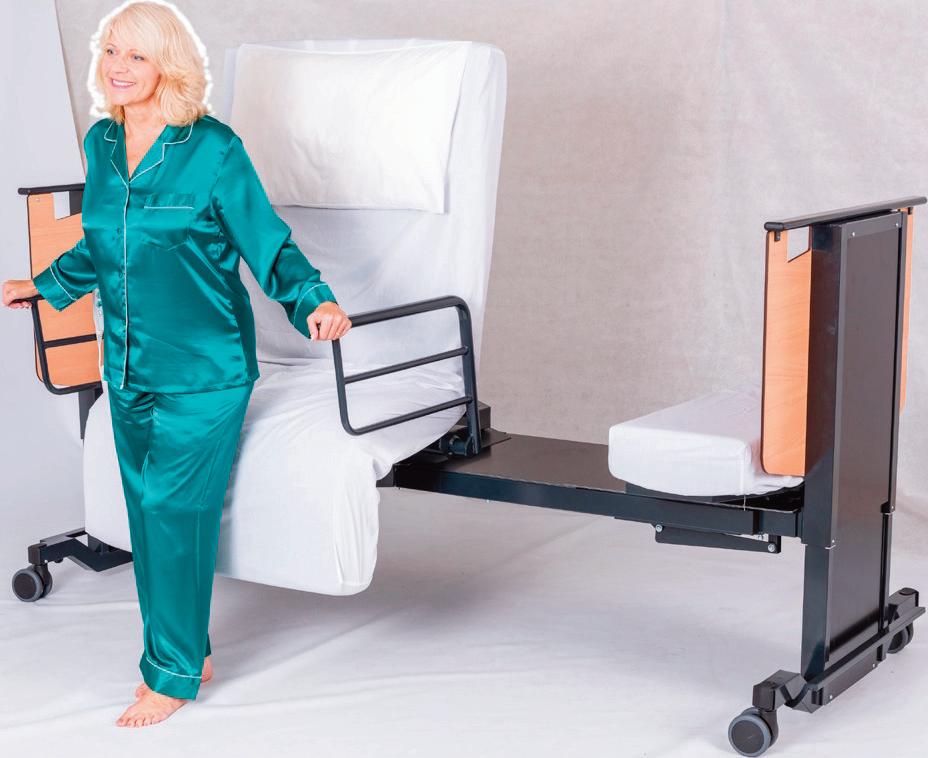



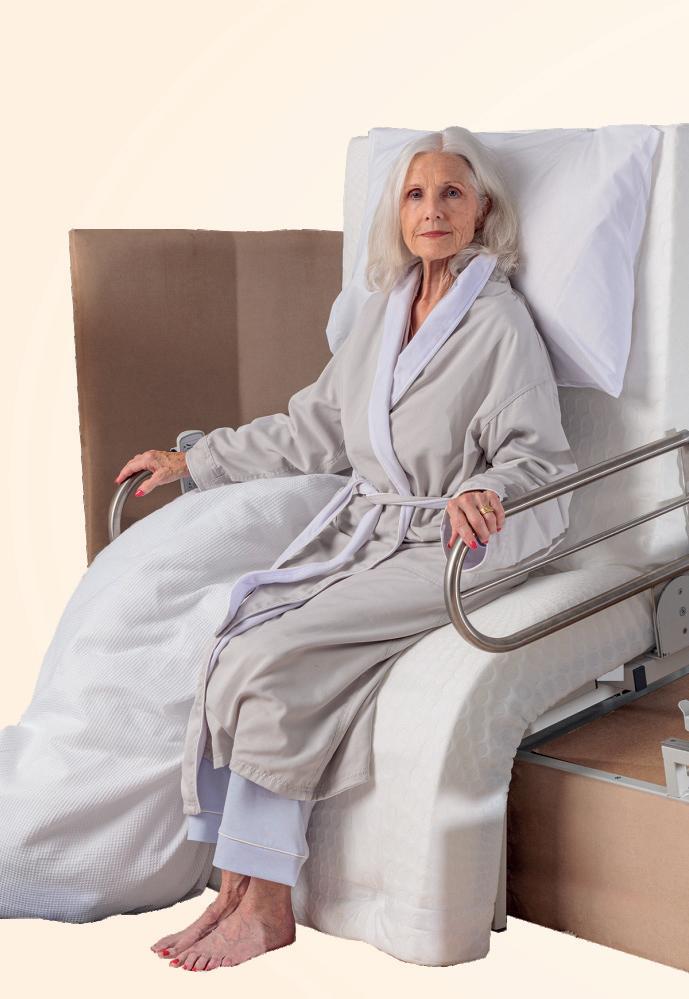









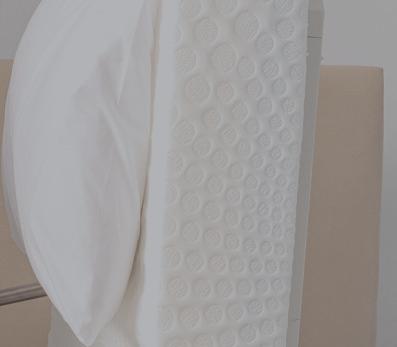
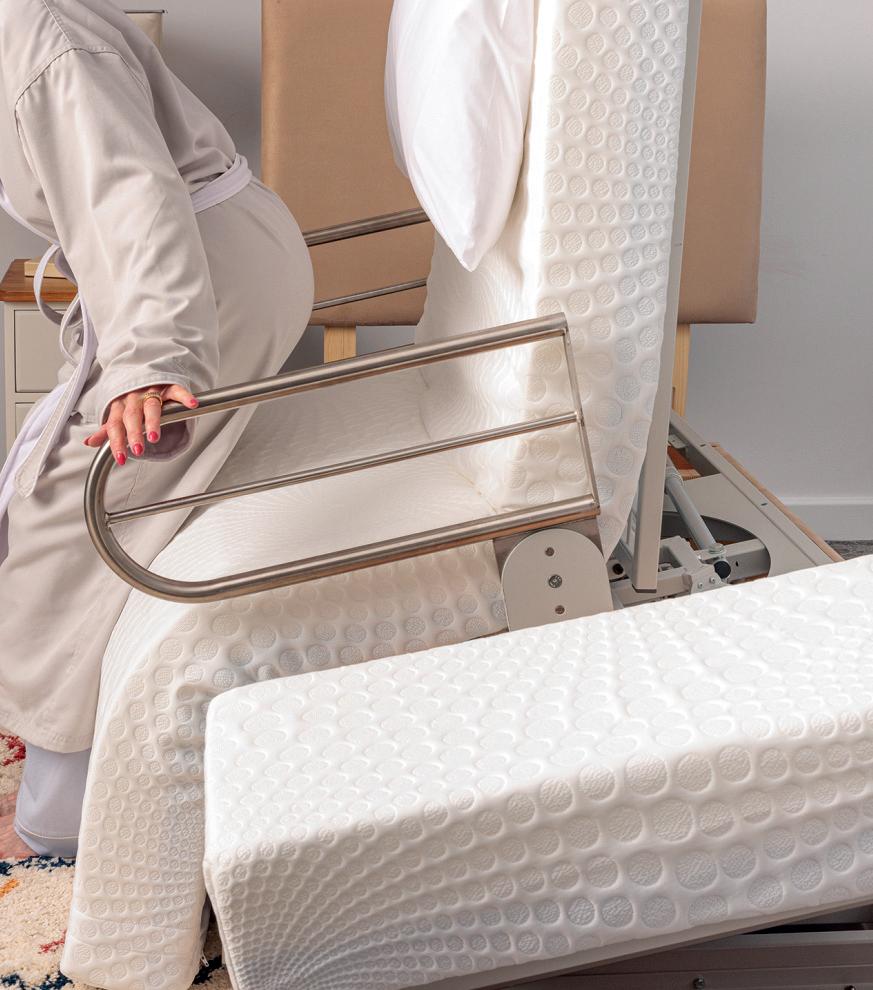
7 MAY, 6.30PM
What’s next? Newly diagnosed webinar We’ll help you to start making sense of your diagnosis and provide signposting to support. mssociety.org.uk/ whats-next-webinar
9 MAY, 6.30PM
MS and mental health –research webinar
Psychologist Dr Joanna Hudson will share digital tools to help manage mental health and MS. mssociety.org.uk/ mental-health-webinar
See our programme of webinars and information events at mssociety.org.uk/ virtual-support-events
1 - 31 MAY
The May 50K
Sign up for the May 50K and walk, run or roll to stop MS. You can decide when, where and how you’ll complete your 50K over the month. mssociety.org.uk/ may-50k
26 MAY
The Big Leap
Experience the thrill of skydiving from up to 10,000 feet and freefalling at over 120 miles an hour. Choose from one of 18 locations. mssociety.org.uk/ skydiving
25-26 MAY
Edinburgh Marathon Festival
Whether you’re a new runner or a seasoned pro, Edinburgh Marathon Festival has something for everyone. mssociety.org.uk/ edinburgh-marathon
22 JUNE
10 in 10
Challenge yourself to the walk of a lifetime. Climb 10 peaks in 10 hours (or five in five hours) in the beautiful Lake District. mssociety.org.uk/ 10-in-10
Find out about all these fundraising events and more at mssociety.org.uk/ get-fundraising
Ancient DNA origins of MS risk genes
Researchers found genes linked to MS were introduced to Europe around 5,000 years ago. They think the changes in the genes of these European ancestors were beneficial at the time. But they also increased the risk of developing MS. Read the full story at mssociety.org.uk/ ancient-dna
Test drug no more effective than existing treatments
Results from the EVOLUTION clinical trials show the drug Evobrutinib is no better than existing drug teriflunomide in reducing relapses.
Read the full story at mssociety.org.uk/ evolution-phase3
New insights into risk of MS in people living with HIV
A study suggests people living with HIV and taking antiviral treatments had a reduced risk of developing MS. This research gives us new evidence for the link between viruses and the risk of developing MS. It could suggest new ideas for treatments.
Read the full story at mssociety.org.uk/ms-hiv
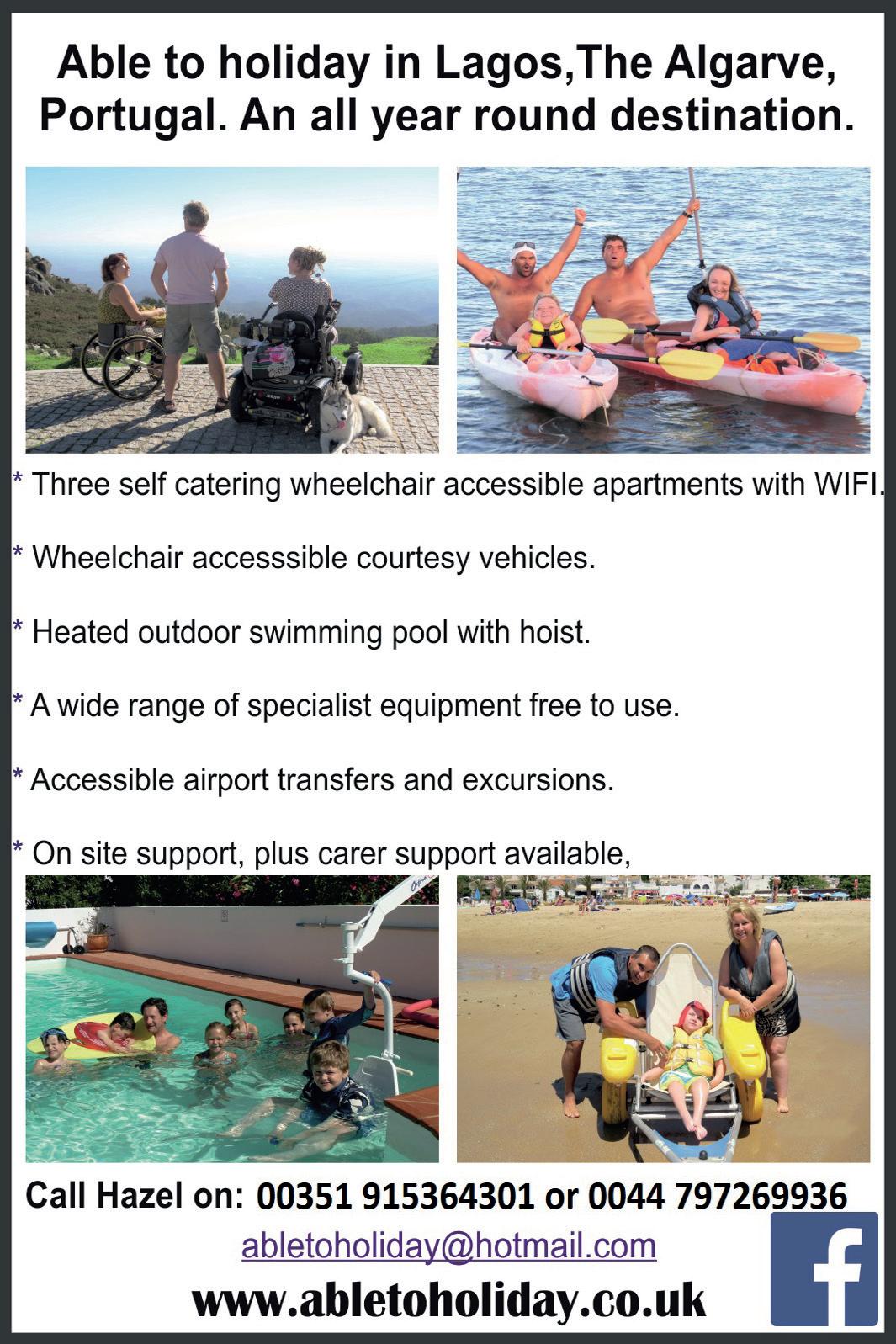
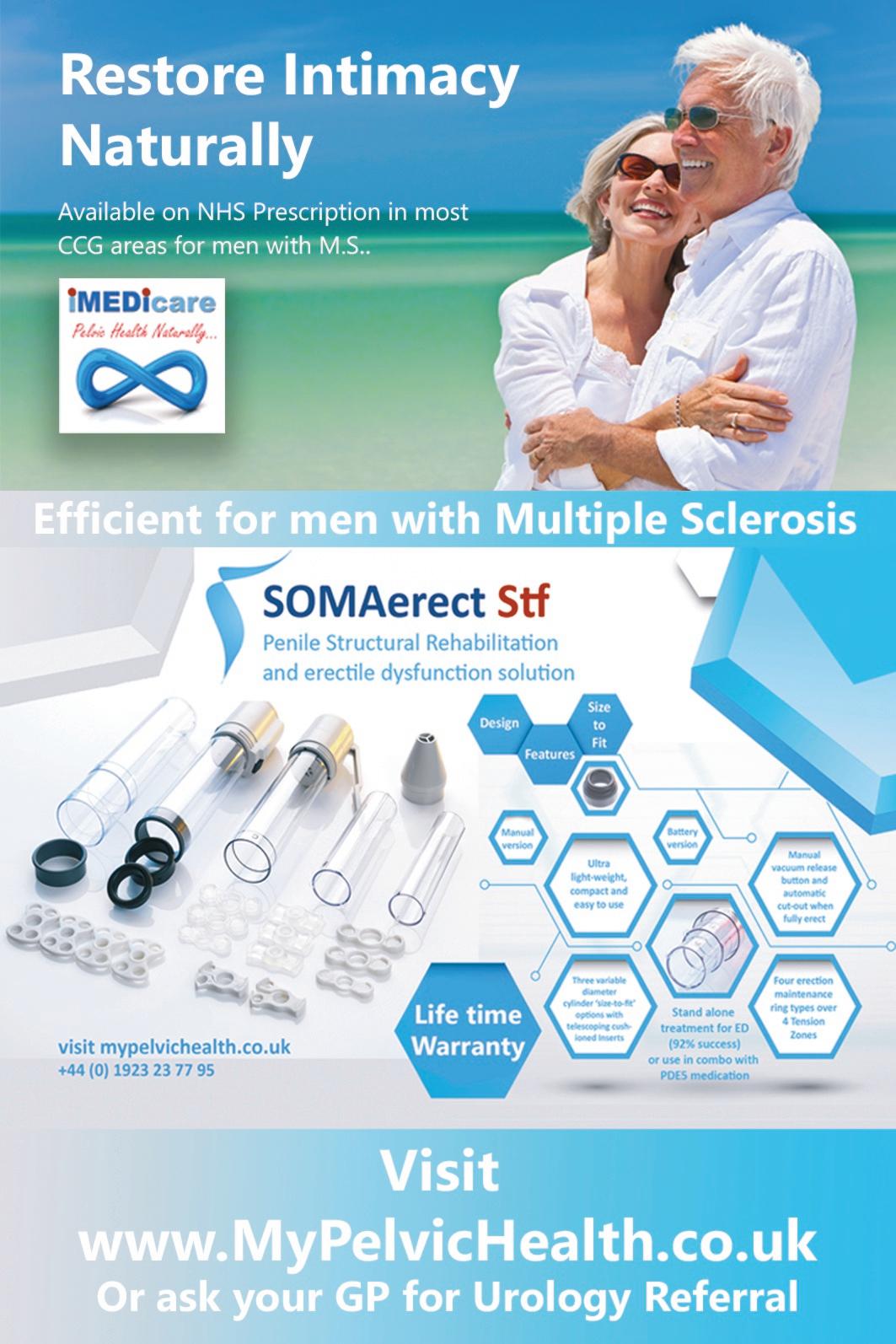

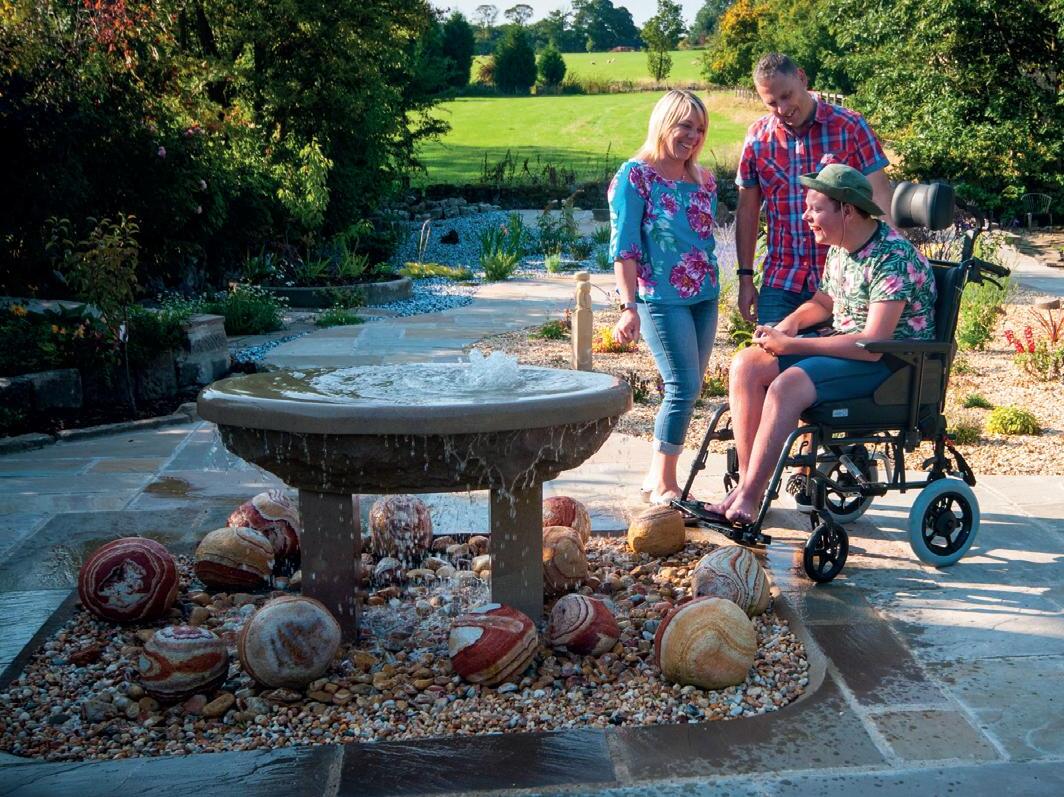











Octopus is our new multi-arm, multi-stage trial for progressive MS. It’s designed to test treatments more efficiently than traditional trials.
1 Octopus is now recruiting in all four nations, with sites including Belfast, Cardiff, Edinburgh and London. Head to the Octopus website to find a list of sites making a splash: mssociety.org.uk/ octopus-sites
2 This is only the first part of the Octopus trial. It’ll provide a structure to test new and repurposed drugs more quickly and cheaply. So we hope people with MS could benefit from the findings sooner than through traditional trials.
3 Over 2,000 people have now registered their interest in Octopus. So if you’re one of these people, it may be some time before
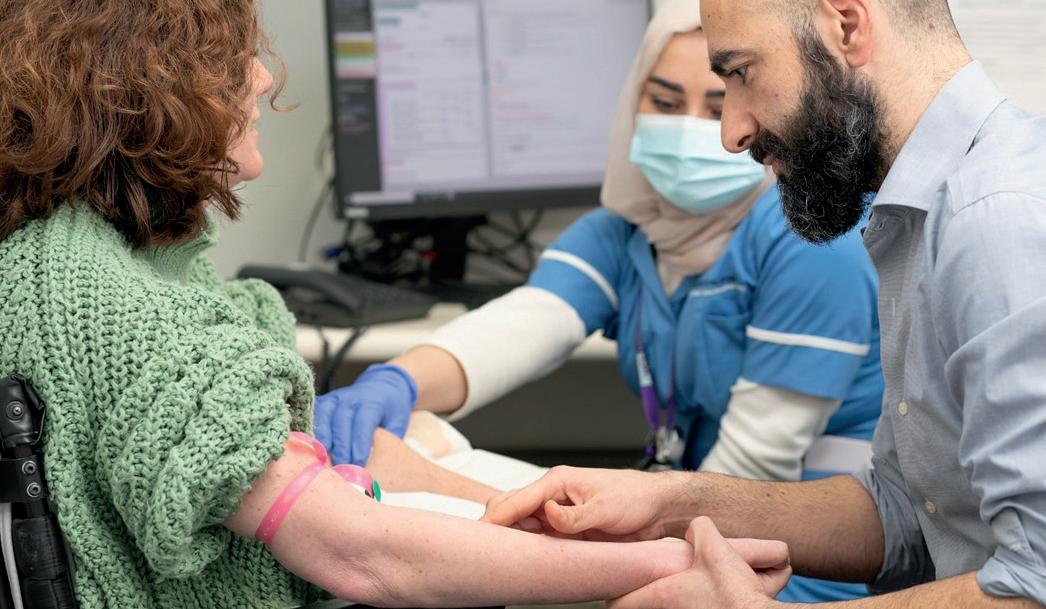
you hear from your local trial team. And it may not be during this first stage of the trial, which will last a few years.
4 Octopus is a rolling programme, adding new treatments as they’re discovered and removing drugs that aren’t showing potential. We hope Octopus will continue for years to come as we dive deeper into research. So there’ll be more opportunities for people to take part in Octopus in the future.
5 Octopus is just one of our clinical trials for people with progressive MS. We also have ChariotMS recruiting across the UK. Find out more about how to be in a study at mssociety.org.uk/ be-in-a-study
6 Being part of another clinical trial now doesn’t mean you can’t join Octopus in the future once you’ve finished your current trial. So you don’t need to ‘jump ship’ if you’re already part of a trial.
7
It’s a secret who’s taking the drug and who’s taking a placebo (a dummy drug). That’s why the trial team have the drug manufacturer do something called ‘over-encapsulation’. That’s to make sure the drug and placebo look identical, even to the researchers.
8 People with progressive MS in Australia will have the chance to join Platypus – an extension of the Octopus trial. It’ll recruit up to 250 participants in Australia.
Scan the QR code to find out more about Octopus or go to mssociety.org.uk/ octopus


We want to make sure everyone has access to the treatment they need. That’s why we fund research into all stages of MS.
People with MS need fair and equal access to treatments, wherever they’re at in their MS journey. But different factors can limit what treatments someone can access. These could include how advanced their MS is, or if they’ve only just received their diagnosis.
Here, we talk about some of the challenges and what clinical trials are doing to tackle them.
There are around twenty disease modifying therapies (DMTs) available for relapsing MS on the NHS. These vary in how hard they hit MS and their side effects.
It’s common practice to start with less intensive DMTs when you’re newly diagnosed. But MS experts are now debating if we should start treating people with harder-hitting DMTs as soon as they get diagnosed.
Currently, people with MS only have access to DMTs when their MS diagnosis is confirmed.
But some evidence suggests that the sooner treatment starts, the more lesions and disability can be prevented. That’s why some experts think that DMTs should be prescribed when people first have MS symptoms, before they’re diagnosed.
There’s a small number of DMTs available for people with progressive MS. But access
to treatments is a challenge for people with more advanced MS.
This is because clinical trials traditionally used walking ability as a key measurement of whether a drug is effective. So people who couldn’t walk very far couldn’t take part in trials. This means we don’t have much evidence to show if these treatments help the people who were excluded.
Finding the right treatment can feel overwhelming. If you qualify to have a DMT, our new decision tool can help you find out which DMTs might be a good match for you. Take the quiz at mssociety.org.uk/which-dmt It’s important that everyone with MS has access to the right treatment at the right time. This can help control relapses and symptoms. And it may help to slow disability progression in the future.
We hope more research like the trials on the next page will help settle these debates and help people with MS get the best treatment possible.
Clinical trials like DELIVER-MS, AttackMS and ChariotMS will help to make sure everyone has access to the treatments they need.
Compares two approaches:
Starting with a milder treatment or
Starting with harder-hitting drugs
The researchers will measure brain shrinkage on MRI scans. This is a good indicator for long-term disability. This research will help people with MS and their neurologists make informed decisions about the best treatment approach for them.
Find out more about DELIVER-MS at mssociety.org.uk/ deliver- ms- extension

A trial for people with advanced MS. It’s looking at a widely used drug for relapsing MS called cladribine (also known as Mavenclad). The trial will investigate if this drug can also help people with advanced MS maintain the use of their arms and hands.
It’s the first study specifically for people with advanced MS including people who use a wheelchair. And the first with no upper age limit.
ChariotMS is open for recruitment across the UK.
Email chariot@qmul. ac.uk to find out more.
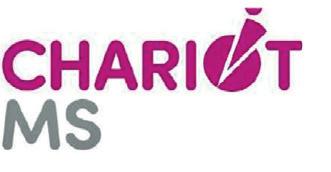
Compares two treatment strategies:
Starting a DMT within 14 days of coming to A&E, when doctors think someone may have MS or
Starting treatment from 12 weeks or more after seeing a doctor. This is the standard wait time to see a neurologist in the NHS This trial will show if treating MS sooner means less long-term disability. And if it can help the brain to repair damaged myelin, the coating around nerves.
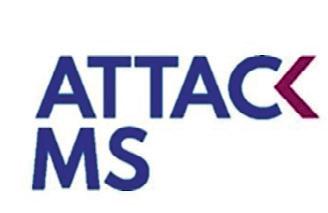



Professor Klaus Schmierer, Lead researcher of ChariotMS and AttackMS:
“The evidence keeps getting stronger that effective DMTs are the key element of MS care at any stage of MS. I hope ChariotMS, AttackMS and other trials will lead to more effective DMTs throughout the course of MS. This would maintain and improve quality of life for all.”
Researchers are working on a new treatment programme to help people with MS who experience fatigue.

Fatigue is one of the most common invisible symptoms of MS. But less than a third of people with MS experiencing fatigue have been offered treatments for this symptom as part of their routine care.
REFUEL-MS aims to help people manage their fatigue day-to-day. It’s an app-based digital treatment that’ll help people develop personalised ways of managing their fatigue. For example, by incorporating physical activity into their routines. Researchers hope it could become part of standard NHS care for people with MS in the future.
We spoke to the people involved in shaping REFUEL-MS.

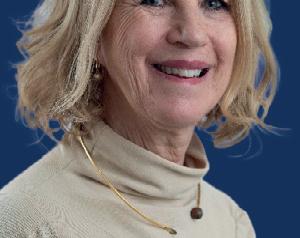
“Currently, there’s no single effective medication to treat fatigue in MS. Some people do find certain medications helpful, but there’s no evidence from clinical trials that these are effective for treating fatigue. And, trials of fatigue-specific behavioural and exercise interventions look much more promising. But research has shown that less than 10% of people with MS who experience fatigue were offered behavioural or exercise treatment.
“That’s what inspired REFUEL-MS. We felt it’s important we use our research and clinical expertise to make sure people get access to these more evidence-based treatments.”



Liv Tamburro, Research Assistant, tells us how the team prioritises diversity.
“We want to make sure what we’re doing is relevant and accessible to as many people as possible. That’s why we’re making sure we speak with people who are under-represented in MS research. For example, people from minoritised cultural and ethnic backgrounds.
“Right now, we’re creating a first prototype of the app. It’ll be really exciting to see this once it’s finished. And it’s amazing to think that one day it could be available to people with MS through the NHS.”



Pearla Papernik, Research Assistant, tells us why working with people affected by MS is so important.
“An important focus of REFUEL-MS is that the programme can be introduced into the NHS one day. We do a lot of co-production, having people living with MS involved in all aspects of our work. That means we can make sure the programme is acceptable to people who access it and they find it easy to use and helpful. And we also work with healthcare professionals to understand how we can best integrate it into the NHS.
“One part of the project I’m really excited about is using insights we learn from our ongoing research to improve our app. We’re interviewing people living with MS, loved ones, and healthcare professionals. When we spoke to people affected by MS, many said they find it difficult to talk about fatigue to others. There’s a lot of stigma and misunderstanding about fatigue, such as it being the same as just being tired. So it can be difficult to explain fatigue and to access support sometimes. We want part of the programme to focus on this.”









Mitelia tells us why tackling fatigue is important for her and her partner Jay, who lives with MS.
“Some days fatigue is overwhelming for us both. It can affect everything from swallowing to cognitive function. We call those ‘bare minimum days’ –just stick to the very basics.
“Jay finds medication can help with their fatigue but there’s other practical things you can do that aren’t drug-related. For example, people say if you do more, then your fatigue can go down, which feels counterintuitive.
“We heard about REFUEL-MS and how it uses this approach. So we thought it might be interesting to try.
“We’re hoping the app could work for us because it’s supported, but Jay can do it when they feel they’re in the right headspace. It can feel like people are getting left to figure out symptoms like fatigue on their own. And having someone to talk to and a structure to follow can help.”
Find out more about REFUEL-MS at mssociety.org.uk/ refuel- digital- research You can attend a webinar with the REFUEL-MS team on 20 June. Find out more at mssociety.org.uk/ fatigue -webinar or scan the QR code.




We spoke to Professor Gavin Giovannoni, Consultant Neurologist and Researcher at Queen Mary University of London, about his research into ‘medical gaslighting’.


 Professor Gavin Giovannoni
Professor Gavin Giovannoni
Visit his MS-Selfie website at ms-selfie.org
What is medical gaslighting?
It’s when a healthcare professional dismisses someone’s symptoms or concerns, or writes them off as normal or not relevant, without explanation. Many people with long-term health conditions report they’ve experienced medical gaslighting.
With MS, it might mean someone is told by a medical professional their condition is stable based on MRI results. But the person is still experiencing worsening or progression, like changes in their bladder function or their walking.
Why does it happen?
Medical gaslighting isn’t unique to MS. We see it across different services. I don’t think it’s something doctors and other healthcare
It’s a term used to describe a situation where someone is made to question their own experiences and perception of reality. It’s recently been applied to medicine.
professionals consciously set out to do. I think ultimately it comes down to time. We get very little time with each patient. We might see them for a short annual check-up appointment, which makes it difficult to share detailed information and answer questions thoroughly.
Our healthcare system deals very well with acute problems, like someone coming into A&E with a broken arm. But when it comes to long-term conditions like MS, symptoms are often hidden. And there might not be suitable drugs available. This can make it harder to give people a definitive answer.
Can you tell us about your research?
I run a newsletter website called MS-Selfie, which aims to empower people with MS to learn more about their condition and help them self-manage it. I ran a survey on the website to ask people with MS about their experiences with medical gaslighting. In seven days I
got over 400 responses. 88% of people reported having experienced medical gaslighting in the past, with about half experiencing it frequently.
Women with MS were more commonly affected. This didn’t surprise me. Research in other conditions has shown that medical gaslighting overwhelmingly affects women – particularly if they’re from minoritised ethnic backgrounds.
It also seemed to be particularly common before diagnosis. MS is difficult to diagnose and symptoms can vary from person to person. This may mean it’s easier for doctors to dismiss symptoms as another, less serious condition.
We need more research into medical gaslighting and MS to help us understand the true extent of the problem and how to stop it. We also need to educate doctors in training about the issue. This will help them examine their own biases and make sure their medical judgement isn’t impacted.
I also think being able to advocate for yourself is vital. I recommend people prepare themselves for appointments with a healthcare professional. Bring a set of questions you want to know the answers to. If there’s someone you trust, you could take them with you. They can take notes to keep track of which questions have been answered and what the suggested next steps are. If people feel they aren’t being listened to during a consultation, they can ask for a second opinion from a different neurologist. I want people with MS to be empowered to understand their condition and make informed decisions with the guidance of healthcare professionals. I want to help them move away from the traditional, patriarchal version of medicine.
Online resources, like the MS Society website and my MS-Selfie website, can help you learn more about your condition and prepare for these conversations. And support groups can be a valuable resource to learn from other people with MS.
Our MS Helpline gives support and information to anyone living with or affected by MS. Call 0808 800 8000 or email helpline@mssociety.org.uk

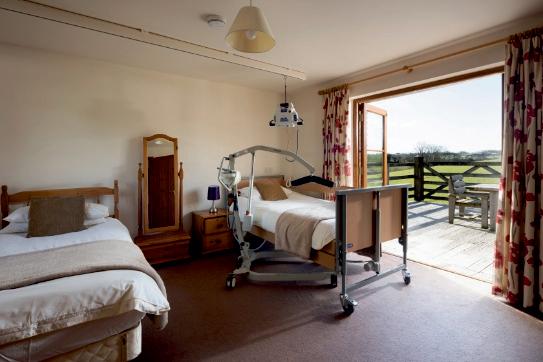









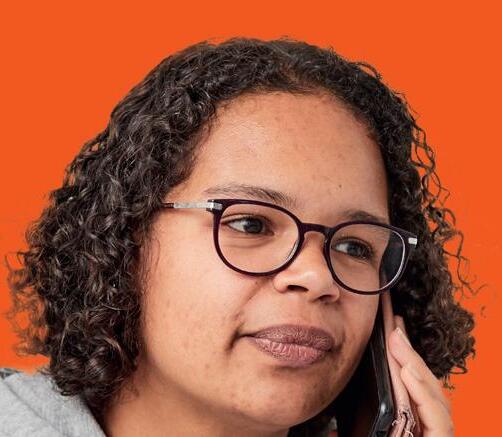
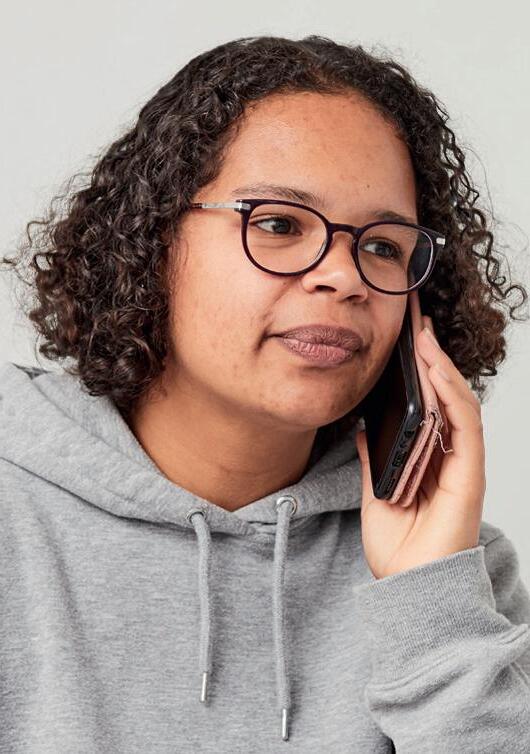

My name is Jay A Gee, formerly Julie Anne Gordon. My pronouns are they/them. I was diagnosed with relapsing remitting MS in my forties, after many years of medical gaslighting.
CONTENT WARNING:
article
My symptoms started when I was a child in the 1980s. I was still a teenager when I became severely disabled. I had overwhelming fatigue and lost the feeling in most of my body. I was in constant pain, with cognitive dysfunction, nausea, vomiting and dizziness. I was bedbound and incontinent.
But for years, dozens of doctors insisted – without testing me – that there was nothing physically wrong with me. They said my symptoms were all in my head. I never managed to get an NHS referral to a neurologist.
As an adult, I went blind for a time. I ended up with a diagnosis of optic neuritis. But I still wasn’t referred to a neurologist. Years in, I was misdiagnosed with chronic fatigue syndrome.
I was so incredibly ill. I just wanted to die.
I was finally diagnosed in my

forties after borrowing money on a credit card so I could pay for a private appointment with a neurologist. By this time, I was 100% sure it was MS. It took one appointment with the neurologist and my very first MRI and lumbar puncture to confirm this. The MRI scan showed significant signs of damage.
While all this was happening, I was also being denied a referral for an autism assessment. I received this diagnosis privately, as well.
The experience of those decades has left me with post-traumatic stress disorder (PTSD) and permanent physical disabilities. I think the fact that I’m autistic made it easy to dismiss my symptoms. I’m from Kingston-upon-Hull, working-class, had no money, no job, and no qualifications. I think all these things were factors.
Once I got a diagnosis, everything changed. I’m on
alemtuzumab (Lemtrada), modafinil, and I’m in the SIZOMUS clinical trial for a drug called ixazomib. My neurologist has referred me for treatment for my PTSD. Now, when I see NHS healthcare professionals, I’m able to get referrals. They treat me completely differently – almost as an equal.
Find out about SIZOMUS at mssociety.org.uk/ ixazomib-trial
If you need emotional support, please contact our MS Helpline on 0808 800 8000 or email helpline@mssociety.org.uk You can also call Samaritans 24 hours a day from any phone on 116 123.
Three people living with progressive MS share their experiences of accessing the treatment, care and support they need.
Patrick Burke (69) was diagnosed with relapsing remitting MS in 1996. Now he has secondary progressive MS. Patrick has had a mixed experience of accessing treatment on the NHS.
Once you penetrate the skin of the NHS, it’s fantastic. The skill is getting past the GP. Why do all referrals have to go through them? In my experience, the NHS works in silos. The referral system can be a bureaucratic loop.
I moved to London in July 2023 and I don’t have a relationship with my GP yet. There have been communication problems with them when I’ve been trying
to get a system for emptying my bowels called Peristeen.
First of all, my GP referred me to a continence clinic. They said I needed tests at the local hospital first and referred me back to my GP. Three months later I got another appointment at the continence clinic. But still no appointment for the tests.
After five months, I’m no nearer to receiving Peristeen. My life is now ruled by my bowels and accidents do happen.
I’ve found it helps to build a relationship with a consultant who understands MS. I was lucky to get a very good “MSologist”
after I was diagnosed. He signposts me to clinical trials and treatments, including symptom management drugs like gabapentin for restless legs.
The care I get at UCL Queen Square Institute of Neurology for mobility, bladder problems and double vision is exemplary. The consultants have great emotional intelligence. But I only found out about these treatments after I met one of their managers at a conference where I spoke about MS.
Hearing other people’s stories on social media helps me ask for treatments. You have to be insistent and persevere.
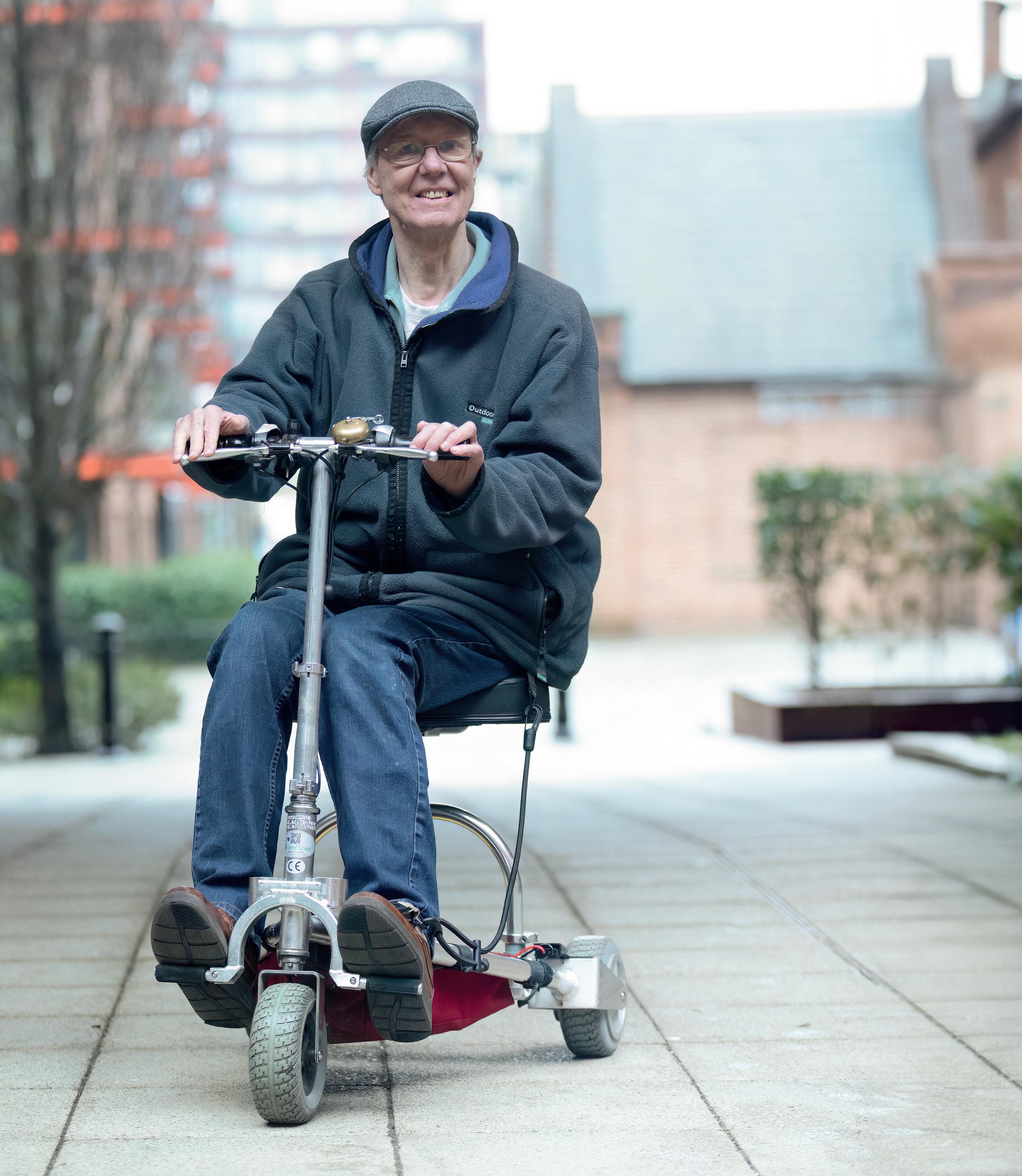
You have to be insistent and persevere
Karen Nicholls (61) had MS symptoms for 11 years before she was diagnosed privately in 2012. Karen has found that the NHS doesn’t provide the support she needs to help manage her symptoms.
I’m a huge supporter of the NHS but, from my experience, it isn’t joined up. It’s good that I get offered an MRI every year, but the information isn’t
used to inform my future care.
I’m told of new lesions and the activity status of my MS. But they don’t tell me what the impact is on my central nervous system or give me any support to manage it.
I feel left on my own. I want some strategies to help me live my life while I’m still able to. But the NHS doesn’t give me any. It’s good at offering disease modifying drugs and therapies, but I can’t have
them for my type of primary progressive MS.
I have bowel issues and have gone through a range of tests. But I haven’t been given any support to deal with them. There’s no face-to-face consultation and follow up. I tried to get some help with managing my fatigue, but I was just given a link to a video. I suppose the NHS just
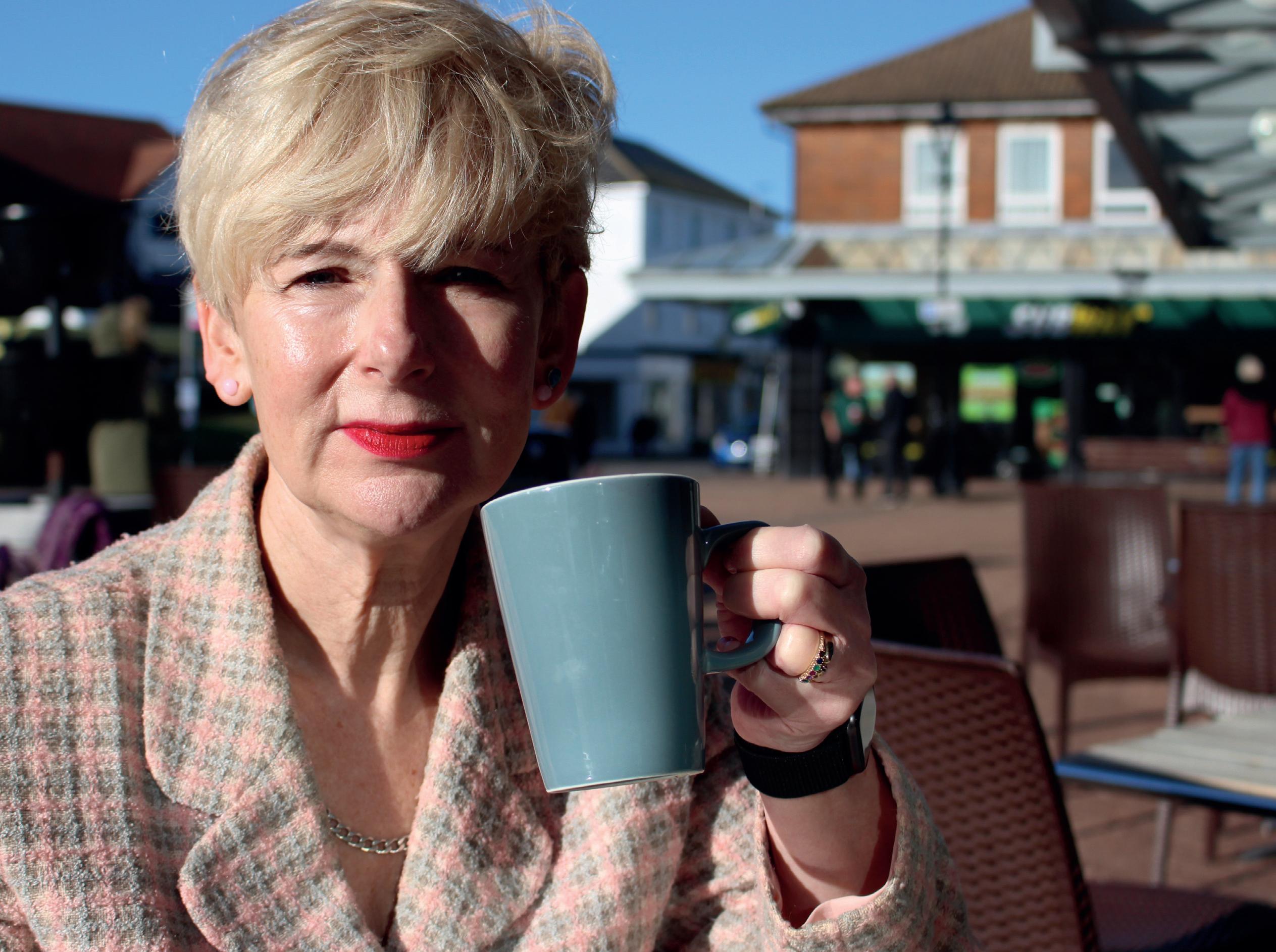
I’m a huge supporter of the NHS but from my experience, it isn’t joined up
hasn’t got the resources. It’s exhausting trying to find help. I have appointments with neurologists who may have some knowledge of MS, but it isn’t always their specialism.
A positive experience I’ve had with the NHS is the MS nurse working for the East Sussex Healthcare Trust. She put me in touch with a psychologist who has been extremely useful. My time with him doesn’t resolve my issues but it’s a talking space. He has an understanding of how MS affects my life.
Have you had issues in accessing the care and support you need, like Karen and Patrick? Our MS Helpline can provide information, support and signposting. Call free on 0808 800 8000 or email helpline@mssociety.org.uk
Tina Morris (64) has primary progressive MS and feels she gets good care through the NHS. She’s taking part in the ChariotMS clinical trial.
I was diagnosed in 2011, about two years after I started having symptoms. They originally thought I had relapsing remitting MS so I was put on beta interferon injections three times a week. That went on for about three years and I seemed to be getting steadily worse.
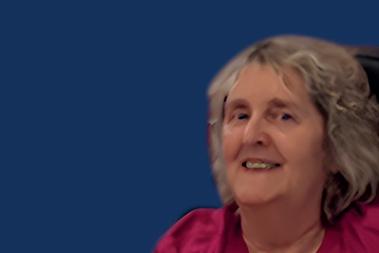




So my GP referred me to a neurologist at a different hospital, where they carried out loads of tests. That neurologist told me he thought it was primary progressive.
I’ve got to the point now where I’m bedbound and I’ve only got the use of my left arm.
A physiotherapist from the hospital recently put me forward for the ChariotMS trial. I joined the trial in 2023. ChariotMS is testing if a drug called cladribine can help people like me keep the use of our hands and arms. The trial team in London is a wonderful team. They’re all very encouraging and approachable – I’m very happy with that.
My GP surgery is also very good. I have a lot of trouble with urinary tract infections (UTIs) but they’re always quick to issue a prescription. The pharmacy is wonderful and usually delivers it the next day.
The team at my surgery are very interested to find out how I get on with the trial. I keep them up to date with what’s happening and they’ll ask me “How’s it going? What’s next?”
In terms of the care I get, I feel I’ve been treated very well.
Are you interested in taking part in MS research, like Tina? Find out more at mssociety.org.uk/take-part or scan the QR code.




Our Ambassador, comedian Ivo Graham, recalls a year of fundraising – from chafed nipples to Wordles on the run.

Can you tell us about your personal connection to MS?
My mother lives with secondary progressive MS. It’s begun to seriously limit her mobility over the last decade and a half. The lifestyle adaptations she –and, by extension, our whole family – has had to make, will be familiar to anyone with MS in their life.
How was your first year as an MS Society Ambassador?
I was very proud to be made an Ambassador. I’ve used this as an impetus to spend more time with the MS Society and step up my fundraising efforts. In April 2023 the Grahams (including my mum) did
I think raising awareness is crucial
a family fun run, then two weeks later my brother and I did the London Marathon. In November I hosted the ‘Some Nerve’ comedy night at Indigo at the O2. I also hosted the MS Society’s Volunteer Impact Awards later that week.
What’s fundraising as a family been like?
The ‘Grahams on the move’ run was the longest run my dad, sister, brother (before his marathon) and mum (admittedly on wheels) had ever done. So fundraising and family bonding aside, it was a day of peak physical performance!
Tell us more about running with your mum. It was rather a surreal prospect. It involved a lot of conversations beforehand about the specifics of the chair (and whether I’d take care on the corners). But it went brilliantly. We used a chair called a Delta buggy and Mum even did the Wordle en route. Hopefully,

there’ll be more (runs not Wordles, or both at least) to come!
What does your mum think about your support for us?
My mum’s expressed a lot of very gratifying pride at my efforts, much as she has in general from 1990 to the present. She’s a wonderful mum who’s been, like so many MS heroes, an inspiration to so many around her. I’m so proud to represent her. When I asked her this question, she said “I’m just ashamed not to be doing more myself!” To which the only response (apart from, obviously, “don’t be ridiculous”) is “Let’s get back in that Delta buggy.”
What have been the best – and funniest –moments?
Sharing the runs with my family provided the most emotional moments, alongside the usual challenges of cramps, nipple chafes and exploding energy gels. The Some Nerve comedy night hopefully yielded a few laughs for people attending. But the funniest bits for me involved navigating a few technical glitches while hosting the (otherwise very successful and moving) Volunteer Impact Awards.
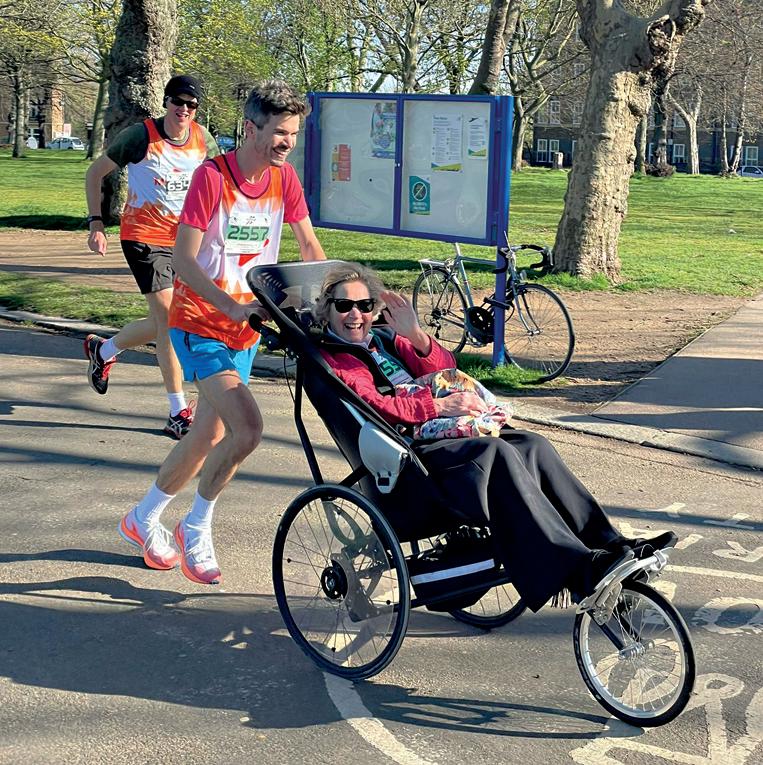
Do you think many people know about MS?
I think raising awareness is crucial. I didn’t know anything about MS before my mum told me about it. Every time I hear stories from the MS community, I learn more about how different the condition’s impact is and how impressively varied people’s responses to it are. Getting
these stories out there is such a valuable part of the MS Society’s work.
What are your plans as our Ambassador for 2024?
By the time this magazine comes out, I’ll be carb-loading for the London Marathon. I hope to do this with comedian and national treasure Rosie Jones. Rosie lives with cerebral palsy, and I had fun introducing her at the Some Nerve night as representing a rival disability! Her set was as uproarious as we’ve come to expect. Introducing her to my parents at the end was another special moment. My mum agreed that Rosie bellowing encouragement from the buggy as we cross Tower Bridge would be a simply epic moment to share. We hope to raise plenty of money and awareness for the MS Society and UP - The Adult Cerebral Palsy Movement. Watch this space!
You can watch Ivo hosting the Volunteer Impact Awards at youtube.com/mssociety
Do you want to fundraise for us, like Ivo? You can find lots of ideas on our website. Visit mssociety.org.uk/ get-involved or scan the QR code.

Dr Waqar Rashid is a consultant neurologist and one of our medical advisers. He answers your questions on accessing healthcare below.
QHow often should I have an appointment with my neurologist?
NICE guidelines recommend you should see someone with expertise in MS at least every 12 months. That could be a neurologist or an MS specialist nurse, or both.
QHow often should I be offered an MRI scan to monitor the course of my MS?
It’s quite nuanced. Everybody on disease modifying therapies (DMTs) or where DMTs are being considered should have a scan once a year. That’s unless they’re very clinically stable on their DMT and their symptoms are stable.
For people with progressive MS, it’s even more nuanced. That’s because MRI scans
become less sensitive to change and disability the longer somebody has MS. Their main value is to show new inflammation, when it can be measured.
That can help with eligibility for certain DMTs, like siponimod for secondary progressive MS and ocrelizumab for primary progressive MS. I’d recommend speaking to your neurologist about whether MRIs could be useful for you.
QWhen a consultant prescribes a new treatment, should they follow up four weeks later to review how I am?
In an ideal world, yes. It should be four to six weeks, although that’s not always achievable. This would usually be with your MS nurse, rather than your consultant. It could be a phone call or a meeting.
QI’ve read about a medication that may help my symptoms. But I can’t access it through my NHS consultant. What’s the best route forward for me?
There are some treatments, like Sativex and fampridine, that are licensed for use but are only available in small pockets around the UK. People with MS are entitled to a second opinion. But it’s likely to be a local funding issue, rather than the decision of an individual consultant. People have the right to contact the funders. In England, that’s the Integrated Care Board (ICB) for your area. In Scotland, Wales and Northern Ireland, it’s your regional health board. Doing this might not have immediate results but will raise the profile of the issue.
up whether the benefit is sufficient to justify that risk. But everybody’s entitled to a second opinion. You can ask for one if you don’t feel it’s been explained, or you don’t understand the reason for the decision.
You should have a clear point of contact with your MS team, usually through your MS nurse. If you’re coming off a DMT, and you experience new or worsening symptoms, you should be able to report those and be seen promptly.
Regardless of whether you’re taking DMTs, you should have ongoing support from your MS team to help you manage your symptoms.
and DMT care. Social support and symptom management support are better delivered through rehabilitation and MS nurses. So the focus may shift towards more holistic care, with therapists who have expertise in both primary and specialist care. But we do still work as part of a team and your neurologist can offer advice and support if it’s needed.
QIs there anything you’d like people with MS to know?


I’ve been told I’m not eligible for DMTs now. What ongoing care should I expect from my MS team? And can I get a second opinion?



 Dr Waqar Rashid
Dr Waqar Rashid
There’s a risk with any medication. Because DMTs act on the immune system, they can increase the risk of an infection taking hold. Your consultant will weigh
Will my medical team change now that my MS is ‘secondary progressive’?
If you don’t take a DMT, you may see less of your consultant. That’s because the consultant’s strength is in delivering diagnostic
People with MS know only too well that there are very significant treatment gaps. The way we’re trying to solve them is through clinical trials, such as ChariotMS. This is testing whether a drug called cladribine can help people with advanced MS keep the use of their hands and arms (see page 21). If it shows benefit, it will be an important step forward.
Our MS Helpline is there to provide information and emotional support. Call for free on 0808 800 8000 or email helpline@mssociety.org.uk
The different healthcare professionals you see could depend on the symptoms you have, where you live, and the support and treatment that could help. Some of these professionals might be based at an MS specialist centre. Others could be based in local hospitals or a GP practice. Guidelines for all UK nations say a ‘multidisciplinary team’ should be involved in your MS care. That’s a group of experts in different types of medicine or care. Sometimes this group is called an ‘MDT’ for short. Here are some of the professionals who could be part of an MDT, as well as others who might be involved in your care.
A neurologist is a hospital-based doctor who specialises in conditions affecting the nerves. Some are specialists in MS, others treat a range of things, including MS. They prescribe drugs, order tests and refer you to other specialist services.
A district or community nurse tends to work away from hospitals, often linked to GPs. They visit clinics, care homes or people’s homes. They can provide quite complicated care to do with things like catheters, wounds, and bowel and bladder issues.
A physiotherapist uses exercises and movements of the body to help you stay mobile, with better balance and less fatigue, pain and muscle spasms. Those trained in conditions affecting the nerves (like MS) have ‘neuro’ before the title ‘physiotherapist’.
A neuro-rehabilitation team helps people get back their independence after a nerve-related injury – like a stroke or the effects of MS. They’re usually based in a hospital or clinic and might do visits to homes or day centres.
Services they offer include physiotherapy, occupational therapy and speech and language therapy. The team might also include a dietitian, psychologist or social worker.
A spasticity specialist is often a consultant in rehabilitation medicine. They work in a clinic inside a hospital and treat severe muscle stiffness. Spasticity clinics prescribe treatments, including drugs (such as Botox). They might offer assessments by an occupational therapist (sometimes called an OT) and sessions with a physiotherapist.
An MS nurse gives advice about symptoms and treatments and can be the link between hospital and specialist services, including social care. They can answer questions by email or phone. Some might do home visits in certain situations.
GP Your GP, or ‘family doctor’ looks after your general health. They may have just one or two patients with MS, so they’re not usually MS experts. They can’t prescribe disease modifying therapies (DMTs), but they can give some medicines for MS symptoms (ideally after
talking to an MS nurse or neurologist). They’ll refer you to specialist MS services.
A continence adviser is a bladder and bowel specialist nurse. They’re based in a hospital or clinic. Sometimes they can visit you at home. They can prescribe exercises, medicines, equipment and incontinence products.
A pharmacist gives drugs, and sometimes equipment, prescribed by your doctor or specialist. They can offer expert advice and discuss issues you’re having with medication. NHS community pharmacists are based in hospitals, health centres or pharmacies but might visit people at home or in care homes. Some work in high street chemists.
For a complete list of who’s who in MS care visit mssociety.org.uk/nhs-who-is-who or scan the QR code. Our MS Helpline can also help you navigate the system. Call for free on 0808 800 8000 or email helpline@mssociety.org.uk





Bowel problems, such as faecal incontinence or chronic constipation can put your daily life on hold.
Qufora IrriSedo Flow is a new bowel irrigation system that is easy to use. With innovative features designed for comfort and convenience. It lets you irrigate in the way that suits you and your daily life. Whether that is in your own bathroom or out and about. Manage your bowels on your terms.
Get in touch with us for more information on 0800 612 9090 or at info@macgregorhealthcare.com.
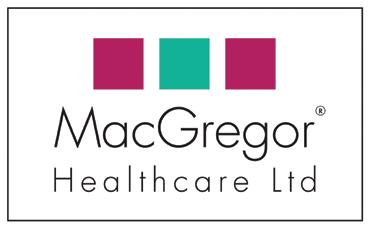
Distributed by
MacGregor Healthcare Ltd
Tel 0800 612 90 90
Mail info@macgregorhealthcare.com
Web www.macgregorhealthcare.com
Comfortable feel -
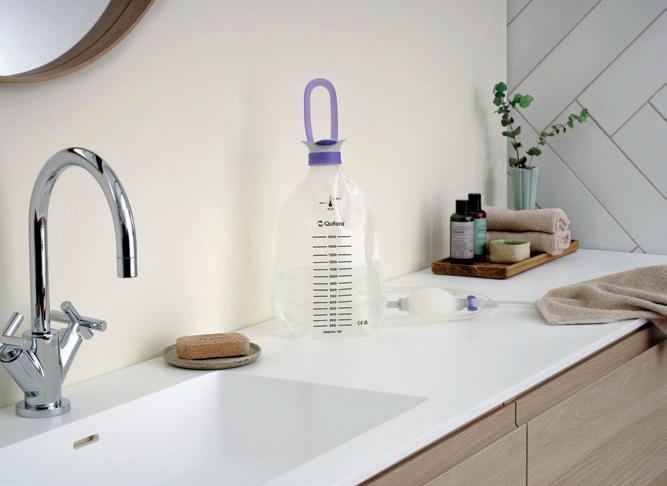

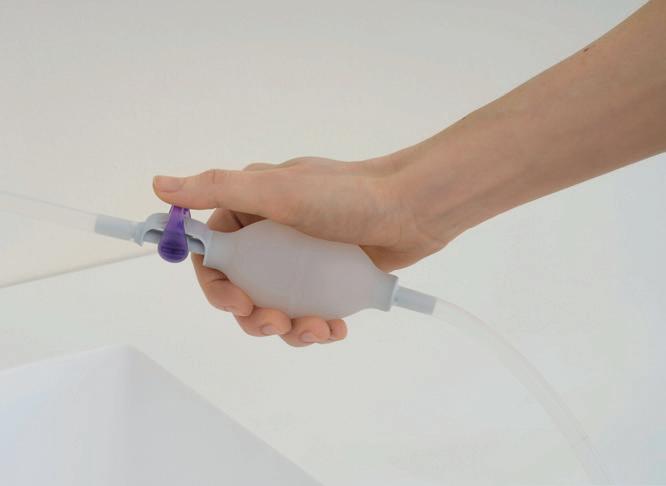
Accessing social care is important if you have MS or care for someone who does.
Step one is to contact your local council’s social services department or, in Northern Ireland, the Health and Social Care Trust. Carers must apply to the same authority as the person they care for, even if they live in a different area.
There are two types of assessment for social care. One looks at what the person with MS needs. Another looks at what their carer needs. These can happen together or, if you prefer, separately.
After visiting you, the assessor decides if you qualify for help. Then the council (or Trust) gives you a plan with what they’ll provide. You can appeal if you’re unhappy with a decision.
What you pay for social care depends on things like savings, pensions, or money from renting out a property. They only ask about the value of your home if you’re moving into a care home.
With assets under a certain
amount, you pay nothing. Over a certain amount, you pay all the costs. Between these two figures you pay a contribution based on your finances. In Scotland ‘personal care’ - which includes help with dressing, washing and eating - is free. Carers tell us they often need to be ‘pushy’ to get help. Services aren’t
promoted enough and they have to look for them. A local MS Society or carers group can help identify what’s available. Carers say social care services often don’t work together with health services as they expected. It can become the carer’s responsibility to make sure these services join up.
Our information for family, friends and carers has recently been fully reviewed and updated. You can find it on our website and in three free booklets: For family and friends: when someone close to you has MS
Supporting someone with MS: a guide for family and carers
Advanced MS: a carer’s handbook
We also have five new ‘Living with progressive MS’ blogs written by people with MS and health professionals. To give a little taste, the titles include ‘We care about our carers’ and ‘My four-wheeled friends’. Find everything at mssociety.org.uk, scan the QR code or call 0300 500 8084 to order booklets.


We talk to three people who are committed to improving NHS healthcare services for people with MS.

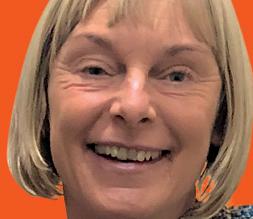
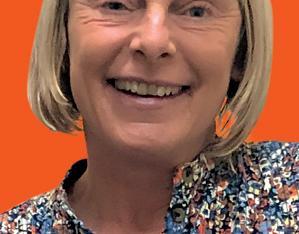


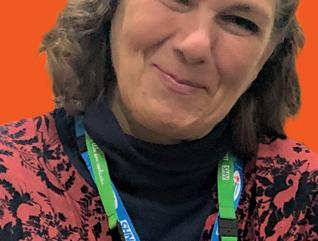
Emma Matthews and Miranda Olding have created new guidance for healthcare professionals to use when someone has an unplanned stay in hospital. It’s a pathway for the care of people with progressive and advanced MS in general hospital wards.
Why did you put the pathway together?
Miranda: I work in NHS community services in Bedfordshire and Emma is based at Northampton General Hospital NHS Trust. So we’ve seen how unplanned hospital stays can cause all sorts of problems, especially when staff on the ward aren’t sure
how to care for someone with progressive MS.
Emma: The pathway aims to reduce the risk of someone’s disability increasing when they’re in hospital. Complications may include reduced mobility, increased spasm and spasticity, constipation, pressure sores and loss of independence.
What’s the pathway?
Emma: It’s a flow diagram covering important checks and actions that health professionals can follow. This is so people with progressive MS get the care they need when they’re in hospital. And help them get home again quickly, with as much independence as possible.
Miranda: It comes with training and a new MS link nurse role. They share their training about the pathway with other staff on their ward.
Have you had a poor experience in hospital you’d be willing to share? If so, please email armanda.winwood@ mssociety.org.uk who will contact you to arrange a telephone interview.
What are the benefits for people with MS?
Miranda: We hope that the experience of people with MS in hospital will be better. And that the risk of the stay making things worse will reduce. Also, that hospital stays will be shorter and the risk of being re-admitted is reduced.
Where’s the pathway being used first?
Emma: We intend to pilot it in our two trusts from March to September 2024. Then
we’ll look at the evidence and, hopefully, push for it to be introduced nationally. Miranda: Then we’ll put together a toolkit for MS nurses across the UK to replicate the model within their own trusts.

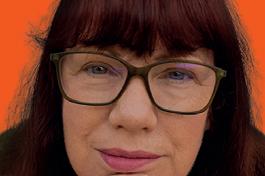

Ann Yates is Director of Continence Services for Cardiff and Vale University Health Board. With a group of national experts and patient representatives, she’s developed a ‘care pathway’. That’s a plan which sets out how people with MS can get treatment for bladder issues.
What’s the bladder pathway for people with MS?
It’s the ideal journey that a patient who has MS and bladder problems should expect, from assessment to treatment.
Where’s the pathway being put into action?
years of diagnosis. Yet, some people with MS have shared horrendous stories of poor bladder care. Services need to follow evidence-based practice.
How does it benefit people with MS?
When services follow the pathway, patients get standardised and quality care. They’re signposted to the correct services for bladder and bowel care. We want to reduce hospital admissions for urinary tract infections and patients’ frustration and isolation.
Could you share an example of a service that’s following the pathway?


Our Stakeholder Engagement Team works with professionals like Ann, Miranda and Emma to help them improve services. Then our Experts in MS Professional Network promotes these better ways of working with health services in the UK. Learn more at mssociety.org.uk/ ms-experts -network or scan the QR code.
I’m working with the Welsh Assembly to introduce it across Wales. It’s also being used in Cheshire and Merseyside. I’d like to see the pathway being introduced across the rest of the UK to make care more equal.
Why’s it important for people with MS?
Bladder issues have a negative impact on people with MS. One in 10 will be identified with bladder problems when they’re diagnosed. Up to nine in 10 will have them within 10
In Cardiff, MS nurses are based at The Helen Durham Centre. The service includes an MS bladder and bowel specialist nurse who’s part of two teams: the MS team and the community bladder and bowel team. Anyone can refer themselves to the MS nurse or the bladder and bowel service.
People with MS can get everything from personalised pelvic floor exercises to regular reviews for selfcatheterisation. Nurses make referrals to other services and work with patients to achieve outcomes they identify themselves.


Enjoy safe, easy bathing with an accessible bathroom
Specialists in bathroom adaptations for the elderly and disabled
CONVERSIONS from £4,999
From start to fi nish you are in safe hands with our dedicated installation team.
Our easy-access walk-in showers, walk-in baths, wheelchair-friendly wetrooms and comfort-height toilets are installed quickly and safely by our own dedicated team. We’ll manage the changes from concept to completion.
Bespoke services to suit your needs
Helpful, friendly and caring team
Fully employed installation teams
Finance options available subject to status Nationwide service

BESPOKE DESIGN, SUPPLY & FITTING FROM AS LITTLE AS £99 PER MONTH*
“The work was completed on time and to a very high standard, would recommend EA Mobility.”
Mr & Mrs H Wiltshire

CALL NOW TO GET YOUR FREE NO OBLIGATION HOME ASSESSMENT

When placing your first order by telephone or the website, quote the code MFC21 to receive 10% off – a welcome gift from us to you!
Call to arrange an appointment or request a FREE brochure today

0808
Bill agrees that persistence pays off with PIP.
Iread with interest the letter from Kay regarding her “fight” to have her PIP application approved (Autumn/Winter 2023 issue, page 7). She mentioned that Rhianna was “put off by the process” and I’m not surprised.
I have secondary progressive MS. Although I still work as a self-employed sales agent, I decided to investigate PIP to see if I could reduce my working hours. I found the process complicated and massively time consuming to the point where I just gave up. At the moment I continue to work full-time but it’s getting harder.
Our local MS Group in Leeds, of which I’m the coordinator, has joined a scheme called Fightback4Justice. This is in collaboration with other groups close to our region. We signpost people who are experiencing similar difficulties and we’ve been
successful in helping people with their claims.
There’s a fee involved and the group shares the cost with our neighbouring groups. So your local group may be able to help.
I must admire Kay’s persistence with her claim. “It’s the squeaky wheel that gets the grease!”
So don’t give up.
Bill, Group Coordinator, MS Society Leeds and District Group
Get free benefits advice through our MS Helpline no matter where you live in the UK. Phone 0808 800 8000 or email msbenefitsadvice@ dls.org.uk
MS Society Groups work in partnership with Fightback4Justice to provide free benefits advice in these areas:
Burnley
Pendle and Rossendale
Calderdale
Hambleton and Richmondshire
Harrogate and District
Leeds and District
Scarborough and District
Sheffield and Rotherham
Skipton
Craven and Keighley
Tees and Esk
York, Ryedale and District
Find contact details for local groups at mssociety. org.uk/local-support
Contact us if you have a comment on something you’ve read in MS Matters, on our website, or life in general. msmatters@mssociety.org.uk fb.com/MSSociety
@mssocietyuk @mssocietyuk



Tony Cardis lives with primary progressive MS. Here, he chats with MS specialist nurse Julie Taylor about their partnership to help people.








Julie: When I first started here five years ago, I introduced myself at your group’s coffee morning. You need that initial meeting to find out what you both want, what you can offer, and how to work together. It just took off from there.
Tony: I know how busy MS nurses are. So our approach as a group was, ‘what can we do to help?’


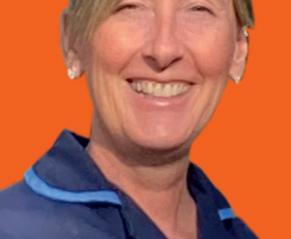
For example, we set up a newly diagnosed group and we offer benefits advice with Fightback4Justice. And we’re also there to support the nurses wherever we can.
Julie: Tony is brilliant. When he tells me about a service, I share it with my patients. And that’s a link for them into the local group. Through this partnership, they’ve helped us so much – with our groups, information days and patient packs.
Tony: My advice for other MS groups is to do a session for newly diagnosed people. This can be a starting point for opening a dialogue
with your MS nurses. Reach out and make the effort to talk.
Julie: We’re both proactive and outgoing. We have a shared vision for the service and a drive to get things done. We don’t always have time to meet but we often email each other about things we want to do and what’s happening locally.
Tony: That’s what I like about Julie, she’s a do-er. I don’t like having meetings where nothing happens. If we have an idea and think it’ll work, it happens.
Julie: It’s great to have Tony as the key link into the wider group. We’re so lucky we get on well and want the same things for people with MS.
Our local groups are there to offer friendship, information and support. Find your nearest group at mssociety.org.uk/ local-support














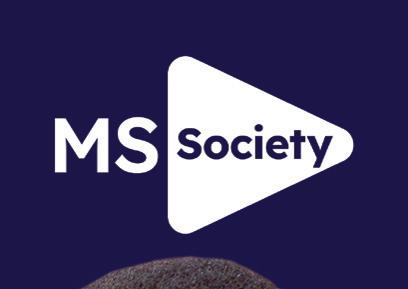









You shared some of your recent experiences of accessing the NHS on Facebook and Instagram.
It took 14 days to get through to the MS nurse’s line despite leaving numerous messages. I was then told casually over the phone that I had a new brain lesion after I’d queried why the follow up for the MRI was nearly a year away. It always feels like a battle calling, leaving messages, advocating. lollypearl
The burden seems to be placed upon the MS patient from day one in terms of following up, chasing, reminding and advocating for themselves. I’ve had my annual MRIs, which I’m grateful for, and started on a DMT. But getting contacted back by the MS team has been difficult and sporadic.
Veronica Kate CoatesMy team are there whenever I need them and I’m thankful for that. I’ve had bad experiences in a different hospital - for example rudeness, lack of sympathy and not really listening to me. I’m so happy I sought a different team because I now have an MS team who truly look after me.
hannah_bethxxMy MS team at the Royal Stoke University Hospital have been amazing. My MS nurses especially. I haven’t seen a neurologist, though, since my diagnosis in 2022. That said, my last MRI was stable and they’re always available through the MS nurses if I need them. The neuro rehab team also helped me so much.
Sian FernMy partner Andrew recently broke his fibula and tibia. After 13 weeks in a plaster cast, he still has a broken leg and now two ulcers to go with it. The doctor said at his age (74) and with MS, diabetes and pernicious anaemia, his treatment was to wait for the break to heal itself. No operation was offered.
Karen HubbardMy neurologist is fantastic, but my GP surgery is useless. There’s no MS nurse in my area. They keep sending me to the hospital for any healthcare and telling me they can’t help me anymore.
mylittlehomeofmagic
Although it’s been a tough process, I can’t fault the neurologist who talked me through it calmly and professionally with a bit of humour thrown in.
gemmabramston
My hospital is so far behind I have to email my neurologist to get an appointment. I had to fight for steroids the last time I had a flare up – they wouldn’t listen to me. I had to have my husband call them. It was as though a woman’s voice meant nothing.
Stephanie
HogarthFor our next issue, we’d like to know what MS research means to you. Send your thoughts to msmatters@ mssociety.org.uk. We’ll also post the question on our social media at facebook.com/mssocietyuk and instagram.com/mssocietyuk
















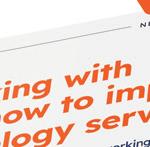
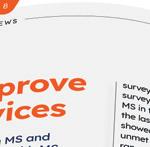
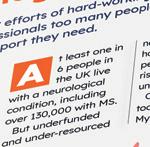
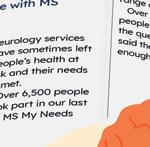











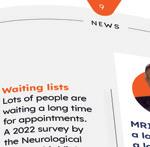
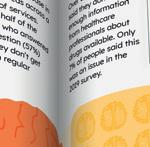
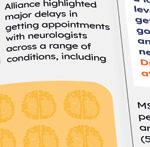



















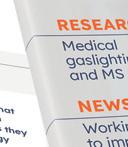







































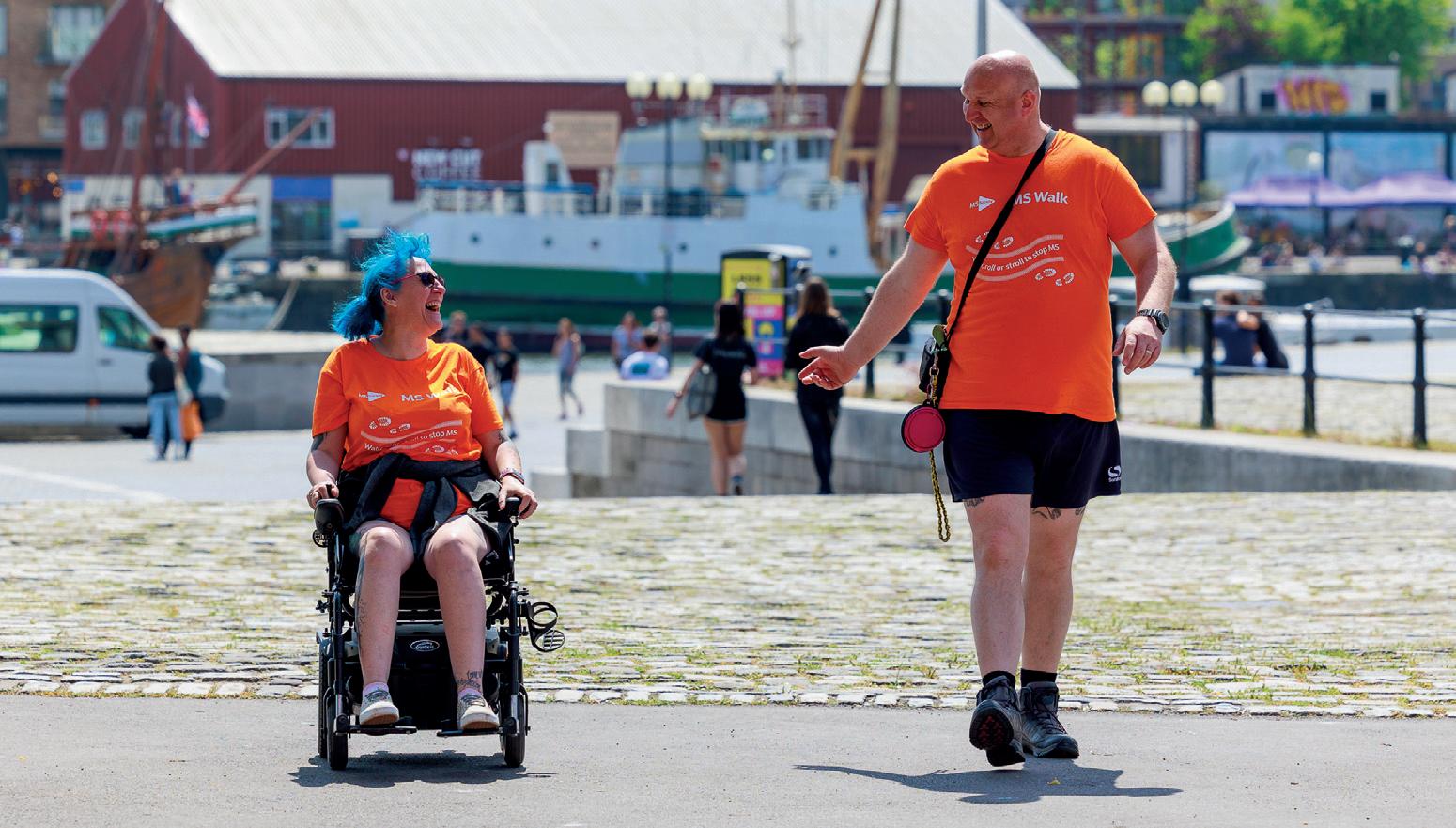
Shelley, Tom and their daughter Evlynne finished all five MS Walks in 2023 - in Manchester, Bristol, Glasgow, London and Cardiff. Here’s why they did it.
Tom: When Shelley was diagnosed with relapsing remitting MS, it was scary because we didn’t know much about it. When we decided to do this challenge, we wanted to raise awareness of MS. We made these walks into little weekends away, travelling in our motorhome and doing some sightseeing. The walks made Shelley so happy. She wasn’t the only one there with MS, and she enjoyed talking to everyone. She’s very friendly and likes to chat! At each event, she’d get out of her wheelchair near the finish and we’d help her walk across the line.
Shelley: We were probably the only ones who did all five walks. I’m proud of that and people were interested in our story. I loved that
so many of us were going around with our bright orange T-shirts and creating awareness about MS. Lots of people stopped and asked me questions, and I got to talk about my MS journey. I knew nothing about it before my diagnosis, but now I’m happy to chat with anyone. Being able to complete these walks has given me more confidence to go places and do more things. I’d encourage anyone with MS to do the walk. Do it at your own pace and, most importantly, wear that T-shirt!
Do you want to walk, roll or stroll to stop MS, like Tom and Shelley? In 2024, MS Walk will return to Cardiff, Manchester, Glasgow and London. Plus, we have an exciting new walk in Birmingham.
Manchester
11 May
Birmingham
1 June
London
14 September
Cardiff
21 September
Glasgow
28 September

The money you raise helps us support people living with MS. It also funds our ground-breaking research into MS. Sign up at mssociety.org.uk/ms-walk-2024




What motivated you to get involved with the MS Society?
Stephanie: I have both a personal and professional connection with MS. As a doctor I encounter patients with MS at all stages of their condition and witness firsthand the impacts. A close friend was also diagnosed with MS in her 20s. Watching her navigate the early stages of diagnosis has been inspiring.
Stephen: My mother. She lived with MS for over 50 years and sadly, in December 2023, she passed away. She lived a full and rich life. Joining the Scotland National Council a few years ago was my way of trying to give back to the MS community.



















Dr Stephanie Wright is a Londonbased GP. Stephen O’Keane is an experienced manager in the finance sector and previous Vice Chair of the Scotland National Council.
What do you think is the biggest challenge people with MS face when accessing healthcare?
Stephanie: I’ve seen the difficulties people living with MS have in accessing services within the NHS. These include satisfactory contact with their local GP and coping with long waiting lists for specialist referral and review. Another issue is access to support services following diagnosis. For example, getting
appointments with MS nurses.
Stephen: I believe getting the tailored support right for each person and their carer is a big challenge. I’ve seen the work and strategy the MS Society is following to address this.
What gets you out of bed in the morning?
Stephanie: I’m in a fortunate position as a doctor that I can
help my patients on a daily basis. Whether that’s treating a common cold or supporting someone living with a chronic condition like MS. I also love going for a jog around Richmond Park in the morning air!
Stephen: My family. I’ve been married to my wife Kara for over 10 years. We have two children, Aida (eight) and Joseph (five).
What do you feel hopeful about?
Stephanie: I’m hopeful that, through medical research, we’ll be able to make huge advances in finding new treatments for MS. And that’s supported by fantastic MS Society fundraising.
Stephen: The leaps in research for MS are truly astounding and give the whole community hope.

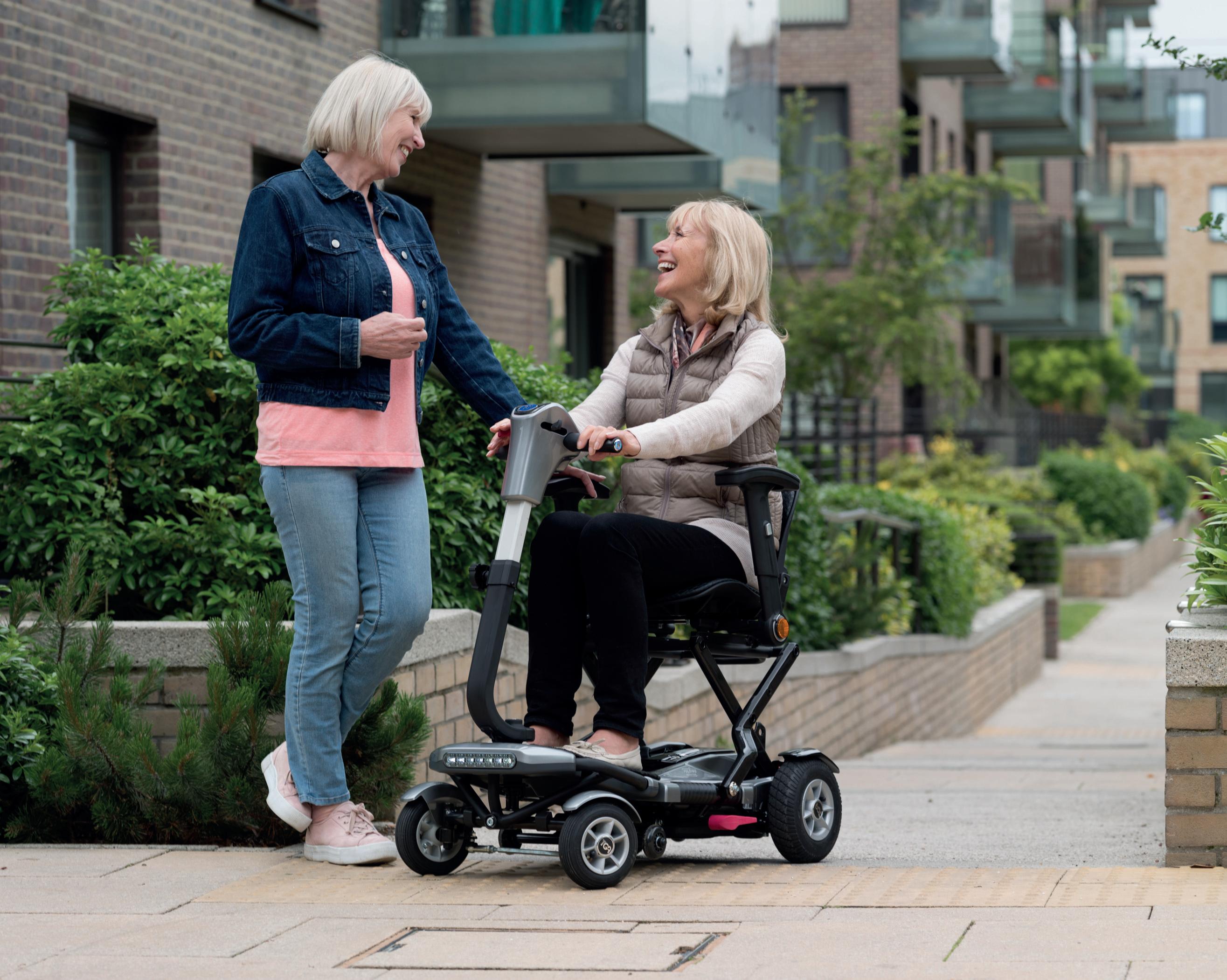
At TGA, we believe that when it gets harder to move, you needn’t stop living. We provide scooters and wheelchairs tailored to suit all kinds of people with all kinds of needs. Which is why we are supporting MS Society so that MS Society supporters can receive a 10% discount on mobility scooters, powerchairs and wheelchairs. As an extra thank you, we will make a donation to the MS Society for every product purchased.
To ensure you find the ideal product, TGA offers a free home demonstration appointment with a qualified regional advisor so you can try our products with no pressure or obligation in the comfort of your own home and surroundings – making sure you get the right product for you.